#bro spent hours perfecting this formula
Explore tagged Tumblr posts
Text

WOAH!!!! DUDE HOW DID YOU DO THAT!?!? :00
i love these guys
#wordgirl#wordgirl pbs#wordgirl fanart#steven boxleitner#pbs kids#amazo guy#amazing cheese#grgrhrhrgrh#pastrami sandwiches#bro spent hours perfecting this formula#surely he is doing important police work and not goofing off or anything#i know he'd more likely scream EUREKA!! but he's trying to be professional 💖#I like cartoon physics because I can smash a bunch of colors and potion beakers and pillars together and say yeah that's legit chemisry#chemistry*#okay thanks for coming to my ted talk#wordgirl memes#memes#my art
151 notes
·
View notes
Note
What's your favorite game you played this year?
You've activated my “review of my year in gaming” trap card! I was already going to make this post in some form or another, you've just given me the perfect launching point. So, the first thing you should know about asking me for favorites: I never give just one. How could I, when it's been such a banger year of games? (Heads up, this one's going to go long.)
I loved Tears of the Kingdom to death, and it took home my most hours played on Switch. It is a shining example of what devs can do with an extra few months to polish a game. There were so many remarkable moments that testified to how much care and ideas the devs were able to put in. I loved how it used the time since the first game to develop familiar places and characters, adding depth (no pun intended) and also making sure every familiar location had some new twist. The story was a much stronger followup to BotW, and I think this overall has my new favorite ending sequence of anything in the series (I'd love to make a full post sometime about how the final Ganondorf battles just keep getting more spectacular with each new title). I am so, so, so, so normal about this incarnation of Princess Zelda.
Also in my favorites this year is Fire Emblem Engage, which hit at just the right time to scratch my strategy itch. As a long time FE fan it’s not a surprise I enjoyed this one- though it lost the political intrigue of its predecessor in favor of a more traditional/tropey story, I still had a lot of fun with all its gimmicks and gameplay innovations. Also it is hands-down the most visually appealing game in the franchise, a title previously held by the series’ GBA entries which are masterworks from the peak era of beautiful sprite art. From the incredible crit animations to the spectacle of super attacks to the battle maps which are so beautifully detailed that the game lets you free roam around them after a battle just to appreciate them better.
I finished the Link’s Awakening remake this year! It was a charming trip back to an older era of Zelda design philosophy and I found it fascinating to compare the ways where the classic puzzles and challenges differ from what the game would be like if it were made today, as well as the places where modern technology allowed for better QoL changes that weren’t in the original. I really enjoyed the music as well, which I find to be a standout among the series still.
Here at the end of the year, I have to give a shout out to Sea of Stars. It has everything you want in an indie darling- very pretty pixel art, very nice music, turn-based battles with timed hits I joke, but Sea of Stars does a great job balancing evoking/paying homage to icons like Chrono Trigger and bringing new gameplay to the JRPG formula. I like its pared-down take on JRPG combat which revamps skills/mana into a much more dynamic resource that’s constantly being spent and regenerated, and I’m a known sucker for character combo attacks which this game has in spades. The later parts of its story are told with a lot of heart, and again I am a known sucker for certain character archetypes. Surprisingly also, I think the movement and exploration is absolutely a standout- not something that’s typically emphasized in the genre. But this game constantly has you hopping across stepping stones, balancing on tightropes, climbing walls and ledges… the emphasis on interesting traversal and verticality is a strength few games like it can boast.
Before my final pick, I’m including a special section for all the games I didn't play myself but watched my friends play and still want to praise: Hi-Fi Rush, Bomb Rush Cyberfunk, Mario Bros Wonder, Pizza Tower, the Minish Cap Switch rerelease, and more all came out this year and all of them have brought killer music, excellent gameplay, and stunning visuals that I’ve enjoyed to no end. Anyone considering to pick up any of them would find a quality product without a doubt.
With all that said: I think ultimately it has to be Tunic in the end. Underneath its premise of a Zelda/Souls-like adventure game there is a wealth of secrets that goes as far down as you have the courage to delve. It’s a game built to evoke nostalgia for games that you didn’t understand yet, posing as a game that you watched an older sibling play or a game you could only find a poorly-translated foreign copy of. It obscures everything and teaches you its secrets through context, exploration, and discovering in-game pages of the manual (remember manuals?). It’s a game made for lovers of secrets and puzzles, full of hidden paths and trophies that reward inquisitiveness and observation (and taking paper notes). It was when I saw that it not only has a conlang, but that it gives you the hints you need to fully translate it, that I knew I had to get it myself. It spurred me to screenshot every in-game piece of menu text, then spend evenings cross-referencing it to identify phonemes and construct a key.
The rush I got on completing that key is one of two moments I knew this game was absolutely special. The second standout moment is when the game teaches you its hugest secret, and then invites you to prove your mastery of it by presenting you a huge, multi-part puzzle. But, Tunic does the same thing that one of my other all-time favorites, Outer Wilds, does so well: powerups via knowledge, “unlocking” abilities that you always had, you just didn’t know that you did. The pieces to this puzzle are hidden in plain sight; it’s only when the game tells you what you’re looking for that your understanding shifts, everything clicks, and your eyes are opened to the path you have to follow. I don’t say it lightly, but I consider Tunic to be a one-of-a-kind title, and one that delivers completely on its unique vision.
In case that brick of text doesn’t make it clear, I love this game.
I love all of these games.
It's a fine time to be alive.
#i talk a lot tag#skysometric#loz#totk#sea of stars#fire emblem#fe17#link's awakening#thank you so so much for giving me this space to make this post#sorry-not-sorry about the wall of text jumpscare#i mean everything i said sincerely and honestly still have more to say about some of these#that i'll save for another time#long post
15 notes
·
View notes
Photo

Welcome, dear readers, to the Gen 3 premiere! Man, we’ve come a long way; from our humble beginnings of Victoria eating cat food on an empty lot, we’re now solidly upper-middle class and we have the phallic shrubbery to prove it.
Our brand new house is the Federal Fortress from the lot bin, which I butchered into this Cyneswith-appropriate masterpiece. On the left is the garage and on the right is the mausoleum..

..which is missing some portraits because apparently that’s something that happens when you move sim-created paintings between lots! So all four of our death portraits are gone, good times, love you Eaxis.

A second disaster occurs as soon as I unpause when both our cleanbot and foodbot go berserk, filling our shinny new house with garbage and dirty plates. Now I don’t know much about omens, but I can tell this is as good as they come.

The third and biggest disaster comes to us courtesy of Fraps, which decided to crap out right after this screenshot, so I have 0 pics of the first day. Mercifully nothing notable happened, it was mostly cleaning up/getting everyone clothes/finding jobs/making Wyatt repaint the death portraits.
The one thing I did learn is that Sophie is truly Komei 2.0: perfected formula. The second she stepped foot on the lot she made a beeline to the pet room and didn’t interact with another human for 24 hours, this a level of pet mania that even Komei himself never achieved. And that was on her literal FIRST DAY. I can’t wait to see if she’s gonna break her own record, I’m gonna be keeping track.

Here is our floorplan so you don’t get lost in this grand palace, 1st floor is living room, pet room, kitchen and dining room.

Second floor are the bedrooms and empty room where we’ll be shoving our (TWO AND NO MORE) kids, and as you can see I’ve learned from the mistakes of the past and provided an abundance of bathrooms. You literally can never have enough of them in this game.

And finally here’s the attic where we keep our misc crap like the reaper phone and Jojo’s robot station. Now I’m sure this doesn’t look like a lot and yet somehow:

IT COST 200K. BRO HOW. Literally how, I can’t.
So anyway ya we’re once again broke, but I’m thinking we’re gonna have 4 people working and 2 of them are at the top of their careers already so it shouldn’t take long to gather a respectable sum again..

-Oh Wyatt, I can’t believe in a few days we’ll be retired and we’ll never have to work again! -Je bareloix wôrked to bégin with! -Haha, very true, darling!
Kill me. Well ok we’ll have 2 people working! Since Cyn and Sophie need time to pursue their horrible LTWs, our financial future rests on the shoulders of.. Shajar and Don. So not exactly sending our best and brightest but what can you do.

-Cyn, don’t tell anyone but I heard we get to fuck around doing nothing while Don and Shaj’s dumb asses work to keep us in luxury! -Oooh, we sure picked the right LTWs, huhu!🌸 -Wanna make a bet which one of those losers gets fired first? -Well poor Donnie barely made it through La Fiesta, but then Shaj is also really stupid in her own way💗 -Cyn, I’m standing right here. -Good job, baby, you’re doing great!🌸

-Ah, after all those years spent as a teen townie bullying CAS spawn cucks I finally get the trophy wife life I deserve!
Soph I don’t mean to rain on your parade but that LTW of yours is pretty brutal, it took Komei a literal lifetime to complete it.
-Ya except I’m not a Komei flop who’s gonna let some stupid animals walk all over me, I’m Sophie Fucking Miguel, and I’m gonna show them who’s boss!
If you say so!

Professional Make Up Cop is back in our lives, which can only mean one thing..

..we got a new pet! This is Abbey, an aggressive, destructive genius and the most expensive dog up for adoption because she knows all the commands required for pet career advancement. I shoved Jojo in the attic and had him working non-stop on robots to sell so we could afford her.
Now during pet asylum I realized the shocking difference re: the speed with which dogs learn commands vs cats, so Abbey is gonna (hopefully) have puppies with Maxx and give us some other dogs to mercilessly put to work.

-Awww, whàt a très bélle dôgétte!
-Why’s this idiot pretending to be French?
Ya idk what to tell you Abbey, but you should know he’s the most normal member of this family.

Case in point.

Oh man, Abbey’s genius brain clearly deduced that Sophie is the one who adopted her with the sole purpose of putting her to work and she’s not happy.
-WHAT THE FUCK IS THIS DOG’S PROBLEM??
Well I warned you Soph, this pet shit is hard!

-Ok, ok, shhh.. shhhhh... good doggie. Now, if you stop acting like a demon, you can go piss on any of Cyneswith’s possessions over here, ok? It’s all that pink crap. Can dogs see pink?
Hell if I know, but it seems like the kind of thing you should know if you want to dedicate your whole life to pet training.
-Ya ok shut up, my methods will absolutely work. Now, Abbot-
Abbey.
-WILL YOU SHUT IT. Now, Abbey, be a good girl, leave me alone and go over there and you can do whatever the fuck you want, ok? Fair trade?

-Well, that’s one pissable carpet, you really don’t get this kind of quality at the shelter.
Great, this reminds me we need to hire a butler + maid combo the second we can afford it with this amount of pets..

..thankfully Don got promoted on his first day! I really want to bang his and Shajar’s LTWs out asap since a) they’re easy career ones b) Don and Shaj have the annoying pleasure and popularity aspirations respectively and it’s really hard keeping them happy so I’d like them at permaplat-ignore-zone c) I need time to focus on Sophie and Cyn’s bs.
So Donnie’s LTW is to become criminal mastermind, which was weird to me because my impression of him was that he’s super nice? Then I checked and it turns out he only has 4 nice points but everyone else in the family -including, if not above all, 10 nice points Cyn- is so awful I ended up mentally casting him as the nice one, but no, he’s a dick.
-I sure am!

-Donnie you’re back! How was work?💗 -Oh moonflower it was great, I got my first promot- -Omg honey that’s so nice/awful depending on what you said! Our bedroom is finished, isn’t it perfect? High five!🌸 -Right ya, uh.. It’s just, there’s not much of me in it? -Well you’re in it right now, silly!💗 -No ya, I am, but I mean like, in the decor- -Do you not want to be in it? Because I only want you to be happy, Donnie, I can just find someone else to be in it, it’s no problem at all!🌸 -NO, NO, I love it Cyn! Best bedroom I’ve ever seen! -Okie then!💗
Don that was.. painful.
-Well at least she interacts with me, unlike Sophie who keeps forgetting Shajar exists!
If Sophie/Shajar is your standard for relationship comparison may God have mercy on your soul.

How’s it going, Soph?
-Looking in this cat’s eyes I am overcome with a strange emotion. It’s like a heatwave.. in my heart.
Considering you almost died of heatwave twice let’s pick a different metaphor.
-But I really might die from this, it’s overwhelming! Oh God, is this that ‘love’ crap Shajar is always bleating about??
Aw beautifully put, Soph, and ya I think it is! Weren’t you gonna show them who’s boss?
-Who am I to boss around these wonderful, intelligent creatures? I’ll save my bullying for those who deserve it: every person I come in contact with.

While Sophie is discovering feelings exist, Don goes to eat some midnight omelettes and is straight up almost killed by the vengeful ghost of Sandy Fairchild, the Apartment Life townie we fed to our cowplant to prolong Jojo’s life. Sandy wasn’t active at all in our old house, but I guess the move has awakened her because she is OUT FOR BLOOD.

Don’s needs were already shit and he barely survives this vicious attack! Sandy wtf, don’t be a bitch, if you’re gonna scare anyone to death it should be Wyatt, he’s the one that killed you.

-You don’t think I’ve been trying? He’s never awake!
Ya he certainly isn’t, good point.
-So I’m gonna kill whoever I can get to instead! A curse on your tacky-ass house and everyone in it!
Well that’s just great. Btw did you guys know pets can ‘watch’ ghosts?? I just saw that in Alcibiades’ actions panel when he was following Sandy around, cool/creepy!

Speaking of Alc, it wouldn’t be a new Union gen without the permanent struggle of getting our pets to procreate. I tried so many times that the family was legit taking shifts, first it was Jojo..

Then it was Shajar..

Finally I bust out the big guns (of niceness) with Cyneswith..

And each time, nothing but disappointment. Alcibiades wtf is wrong with you, knocking up D’vorah was the entire reason we adopted you.

-I don’t understand why it’s not working, Alc, I mean we’re both healthy cats in our prime! -I mean, you are like 4 days away from elderhood.. -WHAT DID YOU JUST SAY YOU LITTLE SHIT

-Good, good, try again you stupid felines! You’re never gonna have kittens with me around!
Goddammit Sandy, did you curse our cats??
-Muahaha!

~Worry not, child, the benevolent spirit of Komei Tellerman is here to lift the curse. I’m the self-appointed ghost protector of cat procreation. Where are the affected creatures?~
Right outside, Komei, please help us, we are so useless!

~It is done~
Thank you Koms, you’re the best!!!
Ok, so now we just need to get Maxx to knock up Abbey and we can finally move on with our lives, do the weddings, start the pet training etc, so let’s check in..

..and see Abbey beating Maxx’s ass to the ground. Ok Abbey, literally why.
-You knew I was aggressive when you got me, bitch! No refunds!
Am I going to bitterly regret this purchase?
-Count on it!

Well, at least Wyatt completed our new and improved death portraits, so you know, one more reason why death is preferable to life in this house.
97 notes
·
View notes
Text
Why Didn’t You Stop Me - Chapter One
bro i can’t believe i actually wrote this anyways im pretty proud. if you wanna read it on ao3 it’s right here
The rain was strange that night. It came infrequently, in short tapping sounds upon the bedroom window. Despite the rain’s strange quietness, it woke Emma.
She stared at the darkened ceiling of her room, feeling her stomach rise and fall with her slow, even breathing. She sighed. Drowsily, Emma pushed herself to sit upon the edge of her bed. Her bare feet touched the cold floor as she stood and hiked up her nightgown ever so slightly with slow fingers. Each step towards her bedroom’s window was passive and delicate in an attempt to stop the floorboards from creaking, which she achieved with some success. With her other hand, she reached to open the window. The whistle of the wind and the hum of a dreaming London always helped her sleep. Moonlight made her thin fingers turn white as she reached for the window’s latch when she paused. There was no rain.
Then a small rock bounced against her window.
Having been knocked out of her tired stupor, Emma rushes to the window and threw it open. She looked down. Standing just a few feet below, rearing back to throw another pebble, was her fiancé, and love of her life, Henry Jekyll.
“Henry!” She called, trying not to laugh. “What on earth are you doing down there?”
He jumped, clearly not expecting her to appear at that particular moment.
“I needed to speak with you!” He called back up.
Emma leaned on her windowsill, her head tilted in amusement. She felt like Juliet.
“Why didn’t you just come in?”
“I needed to speak with you privately.” Henry amended his last statement. “Just…get dressed and come down.”
A sigh escaped her lips. Not of frustration or distress, one of longing. The type of sigh you can only give when the one you care about above all does something incredibly ridiculous. The kind of sigh that can only lead to the utterance of one phrase.
“I love you.”
Emma only caught a glimpse of Henry’s face lighting up in pink and red before she pulled back inside. She dressed as quickly as she could manage, throwing on a pale blouse and simple blue skirt that swept across her feet. She barely put her hair up and rather scandalously, in her mind, didn’t bother with a corset. Besides, she was just meeting Henry. She was getting married to the man in six weeks. Only after a few minutes later, she appeared outside.
When Henry saw Emma, like a beautiful apparition in the moonlight, he rushed to her and caught her in an embrace. She ran a hand across his cheek, coaxing his lips to hers. His kiss felt like the first breath of autumn. Henry pulled away, unable to pull his mouth out of a smile.
“Emma,” He said. “I need your help with my experiment.”
She giggled, slightly perplexed.
“What do you mean?” She asked. “Your proposal was rejected, you don’t have a subject.”
“I know that.” Henry took a few steps from her. “But, I do have a subject.”
Emma placed her hands together. Her stomach knotted with dread.
“Henry, you’re frightening me. What do you mean you have a subject.”
“I’m going to use myself, Emma.” He looked back at her.
That’s what she was afraid he was going to say. She padded forward, clinging onto his arm.
“You can’t be serious…” She said. She rested her head on his shoulder in a fruitless pleading gesture.
“What else am I to do?” Henry pressed his hand over hers reassuringly. He kissed her gently on the cheek. “But I can’t do it myself, I need a witness. I need you.”
It took her a long time to speak again. Emma clung to Henry’s arm, letting the cold wind of the night pass over her skin. She held his arm a little tighter and took in a sharp breath like she was ready to plunge off a cliff into a raging ocean.
“I’ll do it, Henry,” Emma said. “But why come all this way to get me? Why not just get John or Poole to do it?”
Henry turned to look at her, gently taking her hands in his.
“Emma, I’m going to be spending the rest of my life with you.” He said. “If I am to become altered in some way by this, I need you to be there.”
“Oh, my darling, I doubt you’ll change that much. You’re already perfect in my eyes.”
***
The laboratory was never a place Emma was fond of. She would never tell Henry, of course. It was frigid and not particularly well lit and the surgical tools, strange apparatuses and now-empty animal cages that decorated the relatively small room gave her the creeps. Her least favorite aspect of the room, however, was how much time Henry spent toiling away inside. It wasn’t healthy, spending hours, sometimes entire days at a time locked within its confines. Emma supported Henry’s work, no matter what anyone said about it, it was the extreme lengths he went to complete it which worried her.
Emma watched, holding Henry’s journal and a pen at the ready, as he mixed his formula. The process involved several different liquids and powders, none of which Emma knew the name of, much less how to pronounce, all to produce five centiliters of blood-red fluid. Henry raised the hypodermic syringe the formula resided in aloft. He looked back at Emma.
“It’s a thing of beauty, isn’t it?” He asked.
“It’s a bit strange to me.” She said.
“No matter,” He said as he rolled up his left sleeve. There was something frantic in his voice. “This is the moment.”
Despite his visibly shaking fingers, in one swift movement, Henry plunged the straight iron of the syringe’s needle into the vein right in between the end of his forearm and the beginning of his bicep.
“Our moment.”
He injected the formula.
A pause. The air felt so cold that it burned. A single point of black ink bled into the white paper as Emma held the pen to its surface in anticipation.
“So,” She began. “How do you feel.”
Henry stood still. Very still. More still than Emma had ever seen him in fact. His eyes searched the room as his mind searched for the right words.
“Warm. Very warm.” He finally said. “Like there’s this heat spreading through my veins.”
Emma quickly wrote his statement down. Just as she finished, Henry stumbled back, catching himself on the table.
“Henry!”
“No, no, I’m fine.” He waved his hand, smiling a very strange smile. “Just a bit lightheaded.”
Emma watched with bemusement as Henry began to laugh. He placed his head his hand, his whole body shaking ever so slightly from this sudden onslaught of glee.
“A slight feeling of euphoria.” He could barely speak the words.
Delirious laughter echoed through the laboratory. Emma quickly stepped over to the table, putting the journal and pen aside, and grabbing her fiancé by the shoulders.
“Henry? Are you alright?”
As slowly as he lifted his head, his laughter died down. Yet Henry could not remove the grin from his face.
“No noticeable behavioral differences.” He barely managed to keep the laughter down once more.
Emma smiled and sighed, removing her hands from his shoulders and retrieving the journal again. She quickly wrote down the few coherent things he had mentioned.
“Now, the die is cast.” She said, flicking out one last letter.
“I suppose it is,” Henry said, placing his hands on his waist. “We just have to wait. But I’m right.”
Emma covered her hand with her mouth and smiled. She’d got him on one of his little monologues.
“I know I am.” He continued. “But only time can prove my theory now. Prove it to all those fools who didn’t believe me.”
His breathing was ragged.
“I’ll prove it to them. I’ll show them.” He thrust his hand forward as if gesturing to some unseen audience. His smile was full of pride. “I’ll show the world I—“
Henry’s hand dropped. His whole body seemed to go limp from some shock. He stumbled again, and again caught himself against the table. But worst of all, the pride was gone, he looked terrified.
“Henry?” Emma asked, somewhere between horror and good spirits. She felt her own feet stumbling backward. “Is something wrong?”
“Oh, God... What’s this?” He barely choked out. A question to the air. His chest rose and fell at an alarming speed with each hyperventilated breath.
Emma was shaking. She clutched the journal so tightly her knuckles turned white and her nails dug into the black leather of the cover.
“Emma,” He barely stammered. “Some-Something is happening, I can’t explain it!”
Henry’s head suddenly whipped downward. He clutched his face in his hand and desperately gripped to the table with the other. Before his face disappeared, Emma could’ve sworn there was a change in it. Some horrible, near undetectable change.
She couldn’t speak. She couldn’t move. She couldn’t look away.
“There’s something inside me!” He cried out. His voice was strangled. Each word was pushed from his throat with painful effort, and each word was louder and more frantic than the last.
“Emma, it’s driving me insane—“
Henry could barely finish that last word before his voice twisted from barely coherent words to loudest, most agonized scream Emma had ever heard. Both Henry and the journal clattered to the floor. He writhed, his whole body contorting in agony with each cry of anguish. Henry’s voice itself was contorted as well. It began to rasp, seeming to drop deeper as he cried out. Emma wanted to help him. More than anything she wanted to cover her ears and scream, loud enough to drown him out. But she couldn’t. She was paralyzed. Suddenly, Emma felt her eyes playing tricks on her.
Was Henry’s body changing?
She couldn’t bear it. She couldn’t bear to look at that horrible prodigy. Tears came bursting forth from Emma’s eyes as she shielded them with her shaking arms. Her mind was completely submerged in terror.
And then it all stopped.
No more crying out, no more desperate gasps, just silence. Silence and this ever so quiet ragged, rasping breathing.
Slowly, Emma lowered her arms, only to see Henry, no, someone like Henry, standing with his back turned to her. His back was near bent, hunched over the table, as the stared into the mirror just on the opposite side. Emma gasped, tripping backward. He suddenly straightened his posture. He heard her.
With a slow, sweeping movement, his claw-like hand pointed to the journal and pen on the floor. He flicked his wrist upward, wordlessly indicating for her to pick it up. She did, frantically flipping through the pages. The pen rattled in her hand.
“Midnight…” He said. His voice was too low, too deep, too gruff to be Henry’s. He rolled back shoulders. His shoulders were broader than Henry’s, too. “And all’s well.” He added a sing-song tone to his voice.
This creature that stood before Emma and his hands through his undone hair, laughing breathlessly. Calmly, he turned to face Emma, leering and looming over her like some abominable shadow. And finally, when she saw his face, another dagger of fear was driven through her heart.
His face was some gruesome parody of her beloved’s features. Limp strands of hair cast a shadow across his sunken cheekbones, pale lips and dark, merciless eyes. He looked down at his hands, stretching his fingers and savoring the sensation before finally, to her dismay, casting his gaze upon Emma again. His eyes searched for words again, a leering smile pulled his lips.
“Free.”
And once more, laughter echoed throughout the room.
#jekyll and hyde#dr jekyll and mr hyde#jekyll and hyde the musical#emma carew#henry jekyll#edward hyde#writing#kermit's writing#writblr
32 notes
·
View notes
Text
Happy Anniversary “Meteora”! (March 25, 2003)❤️
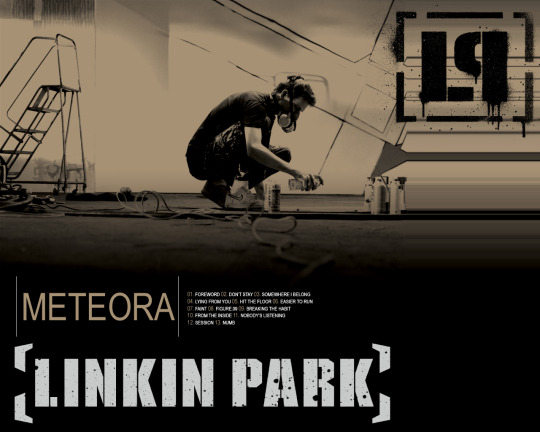
Meteora is the second studio album by American rock band Linkin Park. It was released on March 25, 2003 through Warner Bros. Records, following Reanimation, a collaboration album which featured remixes of songs included on their 2000 debut studio album Hybrid Theory. The album was produced by the band alongside Don Gilmore. The title Meteora is taken from the Greek Orthodox monasteries sharing the same name. Meteora has a similar sound to Hybrid Theory, as described by critics, and the album took almost a year to be recorded. It is the first Linkin Park studio album to feature Dave Farrell after he rejoined the band in 2000.
Meteora debuted at number one on the Billboard 200, selling over 810,000 copies in its first week. Linkin Park released singles from Meteora for over a year, including "Somewhere I Belong", "Faint", "Numb", "From the Inside", and "Breaking the Habit". The song "Lying from You" was released as a promotional single. Meteora received generally positive reviews, although critics noted that the album's musical style was similar to its predecessor Hybrid Theory .
Meteora has sold over 27 million copies worldwide, making it one of the best-selling albums of all time. It is certified 7x Platinum by the Recording Industry Association of America (RIAA). It was ranked number 36 on the Billboard Top 200 Albums of the 2000s. Some songs from the album were remixed with some of Jay-Z's songs for the EP Collision Course (2004). "Session" was nominated for Best Rock Instrumental Performance at the 46th Grammy Awards.
Initial writing for a second album dated back to early 2001, while still touring in support of Hybrid Theory. The band had written around eighty different demos during their Hybrid Theory World Tour and LP Underground Tour, within the span of just eight months. Rough song ideas written then would find its way to the final album; notably the intro for "Somewhere I Belong". Bennington recorded guitar notes for it, but found it too folk rock sounding. However, Shinoda and Joe Hahn reworked it, adding effects to it, and then played it backwards, molding it into something the band was happy with. As explained by Shinoda: "Since I reversed it, it was playing 4-3-2-1. The chord progression was reversed. Then I cut it into four pieces, and I played it 1-2-3-4. And that's why it has that sweeping sound.
In early 2002, after the touring, the writing continued in Mike's home studio, pre-production of the album began there. The band worked in pairs during the writing process, whereas Shinoda was always involved in all the songs. The recording of the songs mainly used Pro Tools, whereas the band used the traditional method of writing, in main studio. In June, pre-production terminated and the band headed for main production. The band finalized Don Gilmore as their producer. When Reanimation was released, the band had started to write the main content. Rob Bourdon spent eight hours a day in the studio for the recording of the album. By August, the band entered NRG Studios as Bennington also began writing songs with the band.
Linkin Park had finished versions of many songs before the actual recording process had begun, but they majorly wrote the finalized songs included in the track list in the studio. By October the drums were finalized and guitar parts were introduced by Brad in the control room of the studio. By the end of October, the bass parts were introduced. Don Gilmore himself being a bass player helped Farrell in his recording. The sampling part by Hahn was introduced just a month before the deadline, thereby Mike finished the recording of "Breaking the Habit" with strings arrangement by David Campbell; the song had been worked on by Shinoda for five or six years. The vocal production started in November. The mixing process as well as the album itself was finished in New York City.
Lyrically the album contains elements including depressing emotions, anger, and recovery. Explaining to MTV, Bennington said: "We don't talk about situations, we talk about the emotions behind the situations. Mike and I are two different people, so we can't sing about the same things, but we both know about frustration and anger and loneliness and love and happiness, and we can relate on that level." In the same interview, Shinoda explained it as: "What we really wanted to do was just push ourselves and push each other to really find new ways to be creative." He continued: "We wanted each sample that was in each song to be something that might perk your ear – something that you might not have ever heard before." In a promotional interview, Rob Bourdon stated: "We wanted a group of songs that would sit well together because we wanted to make a record that you could pop into your CD player and, from beginning to end, there would never be a spot where you start daydreaming." In titling the album, Mike said that "Meteora was a word that caught my attention because it sounded huge." Dave, Joe, and Chester elaborated that just like how Meteora, the rock formations in Greece, is very epic, dramatic, and has great energy, the band wanted the album to have that same feeling.
Genre-wise, the album is categorized as nu metal, rap metal, rap rock, and alternative rock.
The promotion for the album began well ahead before its release, as pictures of the band recording were distributed to the media. To support the album, there were many photo shoots of the band on October 29 at the Ambassador Hotel, where the band took a break from recording the album for two days, for designing the cover art of the album. "The Flem" and "Delta" helped the band for the art works, for the album as well as for the singles spawned by it. A TV commercial for the album was premiered on January 1, 2003. "Somewhere I Belong" was released as the first single, premiering on US radio on March 18, 2003. Being released only nine days before the album release, it influenced the album sales performance worldwide. The second single off the album was "Faint", released before the band started its world tour. The third single "Numb" was released when Linkin Park performed it live in Madrid. "From the Inside" was released as the fourth single off the album before the North American leg of the world tour. "Breaking the Habit" was released while the band was in Indonesia. The album was released with various limited edition content for promotional purposes.
There is a special edition of Meteora, which includes the "Making of Meteora" DVD documentary. The special-edition package was packaged in a blue tinted case with the blue Meteora cover that can be found in some parts of Asia, United States, and more commonly in India. An alternate Indian version contains an alternate DVD and alternative cover that is packaged in a slimline case with the disc in original packaging. The "Tour Edition" of Meteora is packaged in a two disc set. The second disc, which is a Video CD, has the music videos for "Somewhere I Belong", "Faint", "Numb", and "Breaking the Habit". The tour edition is packaged in a standard Compact Disc case, rather than their trademark digipak case. The album was also released on a very limited quantity of vinyl records (spread across two LPs) under Warner Brothers. These are coveted by collectors and fetch high prices at auction. In 2014, Linkin Park released a demo version of Shinoda singing the song, on their 14th annual fan club CD, LPU XIV.
The band promoted the album with their Meteora World Tour and various other supporting tours. The world tour was supported by Hoobastank, P.O.D. and Story of the Year. The band played shows at Pellissier Building and Wiltern Theatre on the day before the album release and on the release date. The shows were called "'Meteora' Release Show". The European leg was cancelled because Chester was having severe back and abdominal pains. As a result, half of the music video of "Numb" was shot in Los Angeles and the Czech Republic. The album was also promoted by the Projekt Revolution festival. A live album was released in support of the album titled Live in Texas. Linkin Park played various special shows worldwide, including "Reading Ireland", as well as performing during the Kerrang! Awards, "Livid", "X-103's Not So Silent Night", "The End's Deck The Hall Ball" and "KROQ Almost Acoustic X-Mas", in promotion of the album.
Meteora received generally positive reviews, although critics noted that the album's musical style was similar to its predecessor, Hybrid Theory (2000). The overall Metacritic score is 62. E! Online rated it A, and expected it to "shoot straight for the stars". Entertainment Weekly described it as "radio-friendly perfection". Dot Music described it as a "guaranteed source of ubiquitous radio hits". Rolling Stone said the band "squeezed the last remaining life out of this nearly extinct formula". Billboard Magazine described Meteora as "a ready-made crowdpleaser". The New Musical Express said it had "massive commercial appeal" but left the reviewer "underwhelmed".
AllMusic described the album as "nothing more and nothing less than a Hybrid Theory part 2.", but added that the band "has discipline and editing skills, keeping this record at a tight 36 minutes and 41 seconds, a move that makes it considerably more listenable than its peers... since they know where to focus their energy, something that many nu-metal bands simply do not." Sputnikmusic writer Damrod criticized the album as being too similar to Hybrid Theory, but praised the album's production quality and catchiness, stating "the songs just invade your brain".
Blender described it as "harder, denser, uglier", while Q described it as "less an artistic endeavor than an exercise in target marketing." Entertainment Weekly gave the album a B+, calling it a "thunderously hooky album that seamlessly blends the group's disparate sonic elements into radio-friendly perfection".
The song "Session" was nominated for a Grammy Award for Best Rock Instrumental Performance in 2004.
In its first week, Meteora debuted at number one on the Billboard 200. The album sold at least 810,000 copies its first week of release. As of June 2014, the album has sold 6.2 million copies in the US, and over 27 million copies worldwide. The album was ranked number 36 on Billboard's Hot 200 Albums of the Decade.
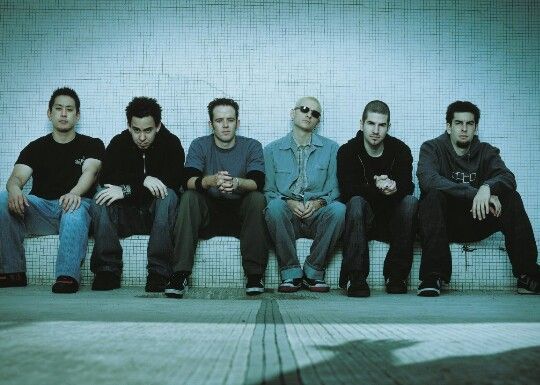
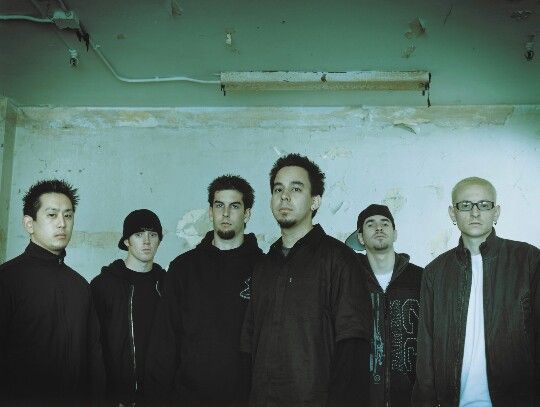
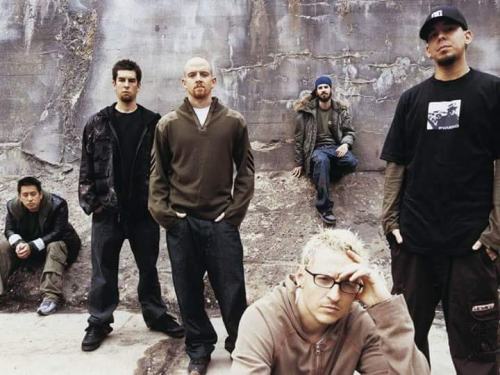
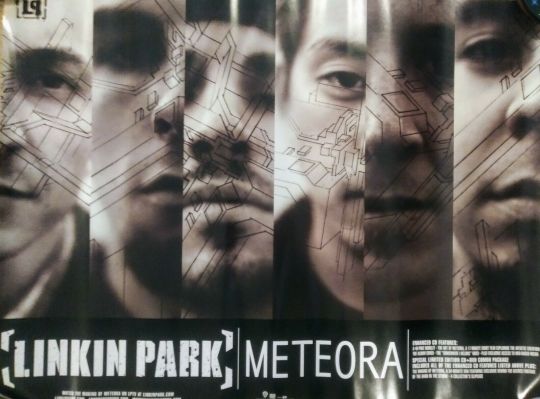
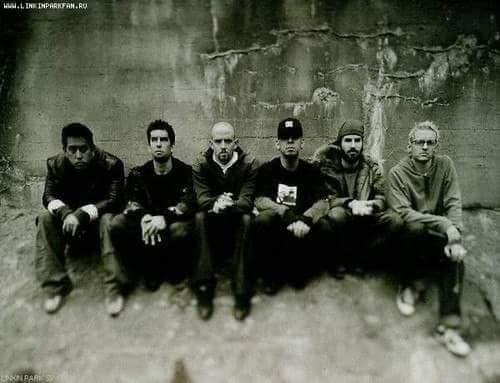
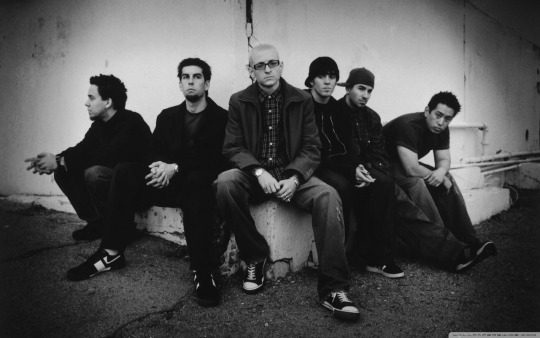
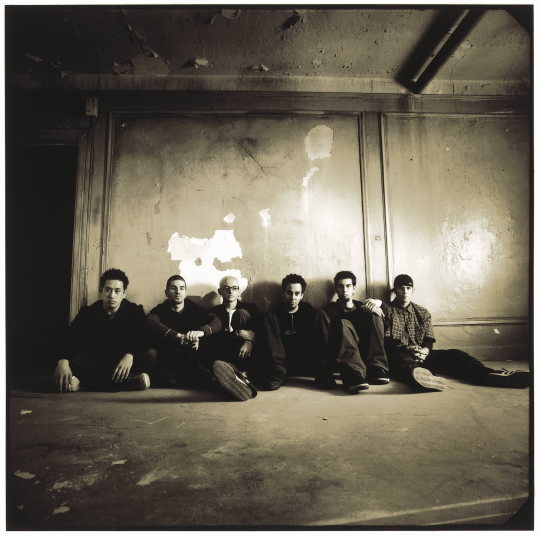
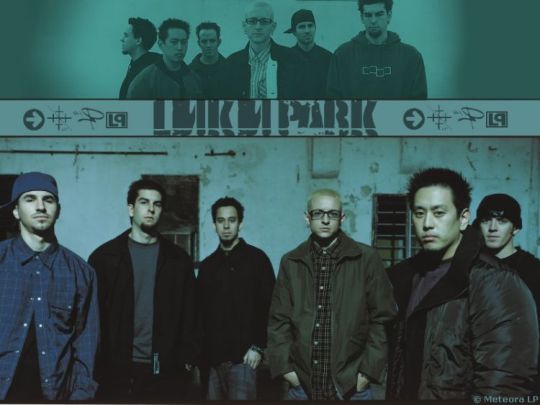
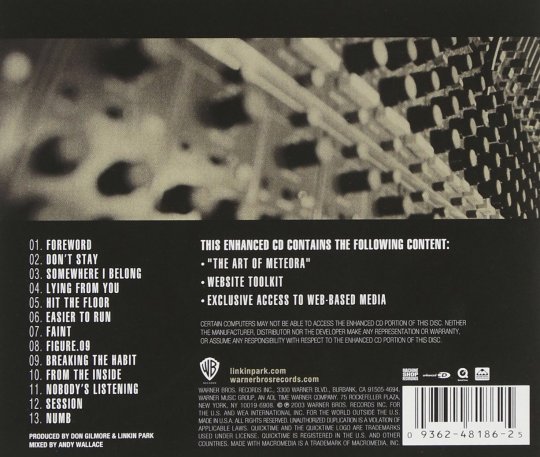
#linkin park#meteora#march 25#march 25th#3.25#3.25.03#3.25.2003#march 25 2003#march 25th 2003#2003#mike shinoda#brad delson#rob bourdon#joe hahn#dave phoenix farrell#chester bennington#2000s
10 notes
·
View notes
Text
Slavery in Thedas: How BioWare Could Bring Nuance to Dragon Age
The Electronic Entertainment Expo (E3), video gaming’s most prominent trade show, has dimmed its lights and shuttered its doors until next June. One game that was conspicuously absent was the highly anticipated fourth installment of the Dragon Age franchise from EA-owned BioWare. This isn’t so surprising since a Kotaku article detailed the turmoil going on at BioWare that led to a truly abysmal reception for its latest game: their first try at an online loot-and-shoot adventure, Anthem.
Still, I must admit that I have thought about Dragon Age every day since The Game Awards of December 2018. That’s when BioWare dropped a 65-second teaser and launched a hashtag that had me hooting triumphantly in my living room, #TheDreadWolfRises. I even wrote an article about who from the past games should appear in the next.
I have met some of my all-time favorite characters and gone on my most beloved adventures while traversing the carefully crafted world of Thedas (The Dragon Age Setting). A big part of that is due to the broader themes of how theocracy, colonization, and war affect the marginalized and enrich the powerful.
Creating worlds
of adventure, conflict and companionship
that inspire you to become the hero of your story.
The statement above is only one of the many messages on BioWare’s website that highlight how much they value story and characters in their games. This attitude has served BioWare well. Its last unqualified success, single player RPG Dragon Age Inquisition, earned a whopping 130 Game of the Year Awards in 2015 and had professional critics specifically praising its story.
Of course, not everyone has been impressed. BioWare frequently gets criticized by what I like to refer to as the “dude bro army” for daring to include PoVs that aren’t in lock step with the dominant culture. Read: “Y’all have too many queers, coloreds, and non-hot ladies in your games!” Back in 2011, the lead writer for the Dragon Age series at the time, David Gaider, wrote a response to one such gamer on their now-defunct message board that was so well crafted it garnered press. Gaider, an out gay man himself, challenged the notion that video games should cater to the fabled “straight male gamer” that all such close-minded dude bros evoke when complaining about diversity. As a bi Black woman gamer, this endears BioWare to me even more.
All is not perfect, however. In addition to sex and sexuality, racial oppression and hegemony are two frequently explored themes in Dragon Age games. There is an allegorical connection between the systemic and situational anti-elf sentiment found throughout Thedas and the anti-Black sentiment that runs rampant in our own world. The problem is that many of these experiences are written and crafted by folks who have never been on the receiving end of this kind of oppression. Although talent and empathy carry the stories surprisingly far, the devil is in the details.
In fact, the usual formula of giving players the freedom to choose how they want to act allows for just as much conquest, haughty disinterest in ethical decision making, and even slave profiteering as opportunities to fight those evils. (I try not to think of how many players across the globe regularly sell elves to slavers for a few in-game bucks while I’m murdering every slaver that the game will allow.)
This is why when another Kotaku article reported that a Dragon Age project set in Tevinter—the slave trade capital of Thedas—was scrapped, I didn’t share in the disappointment that bubbled throughout fandom. Quite frankly, I was relieved. I unfortunately don’t see BioWare being able to craft a story taking place in Tevinter in a way that won’t be chock full of obliviousness, microaggressions, and straight up triggers for Black players.
How can I think this way about one of my favorite game franchises of all time, you ask? Well, in Inquisition, it was not only possible, but extremely easy for someone playing as an elf to make a mistake and wipe out their entire clan while assigning missions on the war table. Because this process takes place over multiple in-game decisions and hours of gameplay, there was no way to go back and fix it. What’s more, no one even acknowledges that it happened in the game.
To be fair, the developers admitted that this was a problem, but saw it more as a design faux pas akin to other similar war table missions that went awry. To me, it resounded particularly loud to see an oppressed people who were frequently set upon by aggressive humans get extinguished like a flame all due to my actions. What’s more is that this is my Inquisitor’s family and the only society she’d known until the beginning of the game. To say it jettisoned me out of the heroic role play fantasy for a while would be an understatement.
Later in the “Jaws of Hakkon” mission, when it is revealed the first Inquisitor was also an elf but the chantry (church) scrubbed all records of this from history, the game similarly ignores the profound implications this would have for an elven Inquisitor. I have spent my whole adult life trying to sankofa (go back and fetch) all the history of my people that has been deliberately obscured or warped by a western school system. This connected to my life in a way that was never even partially explored in the game.
Other ways a few high ranking Black developers could have helped BioWare is with Dorian. Sure, he’s one of their most dynamic, fun, and charismatic characters in Inquisition. But he’s also an unrepentant slave owner who, even late in the game, vacillates between vacuously apologizing to Solas for Tevinter’s fabled domination of Elvhenan and encouraging the annoyed elf to enslave spirits to do his bidding.
And then there’s Vivienne, the one character designed as a Black woman. Look, I’m not suggesting that tough as nails, power enthusiast Vivienne should’ve dropped her unfriendly Black hottie status and held hands with everyone. But how much more nuanced and mindful would Vivienne’s characterization have been in the hands of a Black woman who has spent her academic and professional career modulating her voice and carefully curating her demeanor to avoid the scarlet letter of being dubbed “angry” or “difficult”? What made “The Iron Lady” into the cold, calculated defender of the status quo? The horrors and indignities she must have faced in the Ostwick Mage Circle that led her to create her impregnable persona are never even hinted at.
Furthermore, Vivienne is immediately and permanently pit against the most lovable character in the game, Cole. No one in the game seems to understand her position. She is a Circle mage that was taught to mistrust and fear demons before she was able to read. Of course she’s scared to death of Cole! Instead, the game just casts her as an irrational bigot and a danger to ‘innocent’ Cole, a being that even admits he is potentially quite dangerous.
And that's not to mention Sera's internalized elven racism and self-hatred that could have used more nuanced handling from someone of a community that deals with such things.
I just…Hire some Black writers and developers, BioWare.
That way when you explore these themes common to our experience there will be a level of authenticity Black players can appreciate and identify with immediately while non-Black players get to enjoy a narrative shaped by people with a deeper connection to the subject matter. Having multiple queer writers helped the sexuality content immensely; it’s time to do the same for the racial commentary.
Patrick Weekes, the current lead writer for the Dragon Age series is an immense talent. He wrote my favorite character in the entire franchise, The Iron Bull, and two others in my top 10, Cole and Solas. I have no doubt that he and his team will create an incredible yarn, but if BioWare wants to level up and reclaim their former glory after their last few games have struggled, leaving their brand a bit tarnished, they are going to have to evolve and invest in more diverse, authentic voices.
114 notes
·
View notes
Text
the Meat Life Stay-At-Home Watchlist
Chronicling what I have watched or rewatched through the pandemic so far
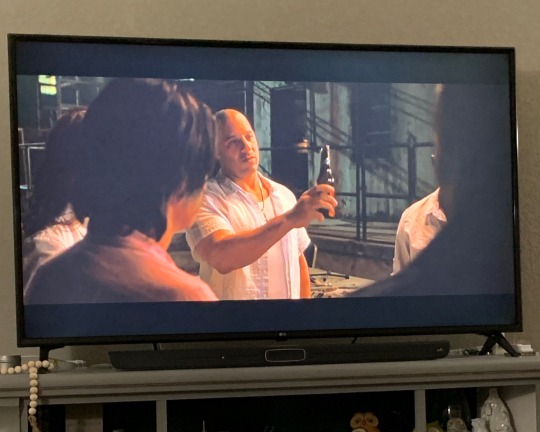
The world has changed around us the last few months, particularly in the United States since March 11. With the lack of events to hit up, like most Americans I’ve been catching up on some watching through the various streaming services and my own digital copies of movies and shows.
I didn’t really think of keeping up with what I have been watching until just recently, but here is what I can remember hitting up so far since I’ve spent the majority of the time at home. Some are favorites that I would have watched anyway. Some were unfinished until I got a chance to get back to them. And others just became available.
Here’s what I remember of the watchlist:

The Office (Netfilx) This is a favorite of me and the wife. We watch this on the regular though. My wife uses The Office as her lullaby of sorts, putting it on in the evening as she gets ready for bed and is in bed to fall asleep. I did a post on the 15th anniversary, so I won’t really deep-dive.

Gossip Girl (Netflix) Another one that my wife rotates with The Office as her lullaby. The series is not bad, it’s basically The OC in Manhattan (both are created and developed by Josh Schwartz). It also takes on a new perspective when you think about star Penn Badgley is the creep in You. So Dan Humphrey gets this weird creeper Joe Goldberg vibe at times.
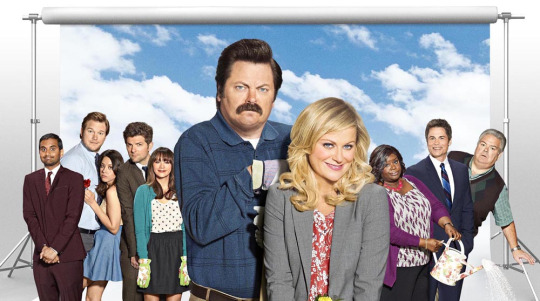
Parks and Recreation (Netflix) I never got into Parks and Rec on its original run. I was encouraged to check it out by some coworkers since I liked The Office. It is a great show, very funny, and poignant in a way. It feels like a throwback to when people could disagree politically and still get along. There is a lot less of that nowadays. We might need more Parks and Rec in real life. I started this right before the pandemic and finished around the beginning of things getting locked down.
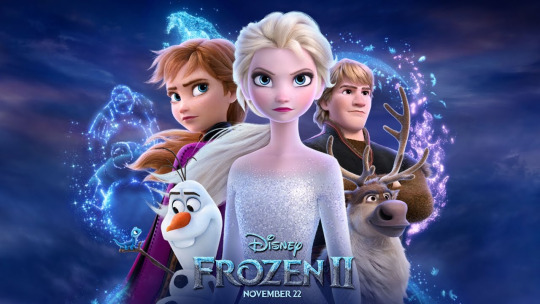
Frozen II (Disney+) The sequel debuted on Disney+ early on in the quarantine period. My family enjoyed it. I thought it was entertaining, but I felt like it was weighted down a bit by the mythology explaining. It seemed too busy explaining a lot of things. Still an enjoyable movie, but the first is better.
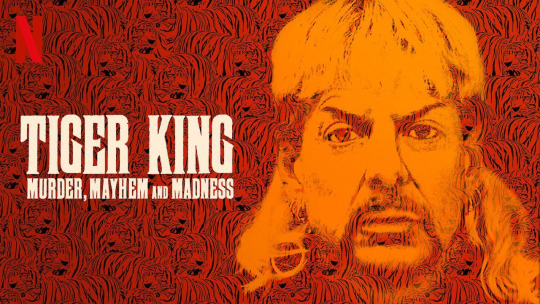
Tiger King: Murder, Mayhem, and Madness (Netflix) Intriguing. The series debuted early in the quarantine period and became a staple of stay-at-home viewing and a runaway hit. Lots of WTF moments. It was like the train wreck analogy to the Nth degree. But you can tell it was made in a way that leans in favor of Joe Exotic, making him look like a victim in the last couple episodes. Also gave way to memorable memes ever since.
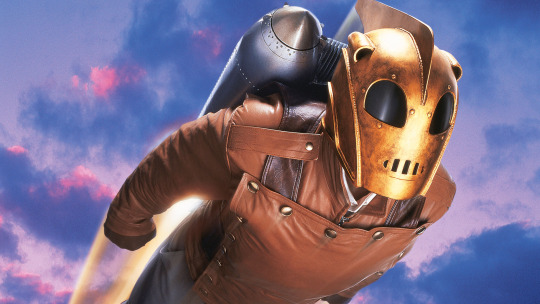
The Rocketeer (Disney+) I haven’t watched this movie since I was a kid. Looking back, you can see a lot of The Rocketeer in Captain America - The First Avenger. Easy to see though, since they share the same director Joe Johnston. Prior to America’s involvement in World War II, a movie star Nazi goes after an experimental rocket pack developed by Howard Hughes. The rocket pack is retrieved by accident from a down on luck stunt pilot. Fun movie.
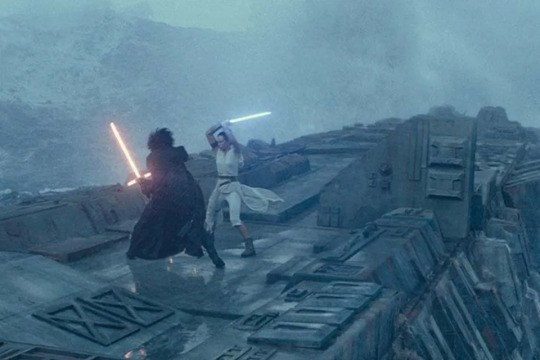
Star Wars: The Rise of Skywalker (Disney+) I should have watched the entire Skywalker saga leading up to it, but I figured I have a ton of time to do that later. This was a May the 4th watch. I haven’t watched the Skywalker saga finale since it was in theaters. It’s not a bad movie, I just feel it could have been a lot better with some modifications here and there. Also, I believe this was going to be the Leia movie. The Force Awakens was Han’s swan song, as was The Last Jedi for Luke. I feel like this would have been great for Leia but obviously they were limited due to the untimely death of Carrie Fisher. The scene where Ren/Ben speaks with Han after battling Rey would have hit harder with Leia instead of Han.
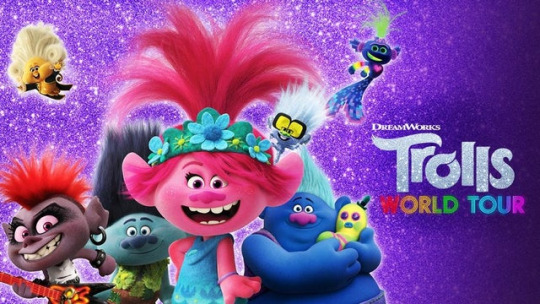
Trolls: World Tour (VOD) Cute kid movie. Was nice to hear a lot of familiar music. Sucks that rock was the villain in the first couple acts. Seeing it once was enough, though. Like the first Trolls, I am glad my kids enjoyed it but did not participate in excessive multiple viewings.
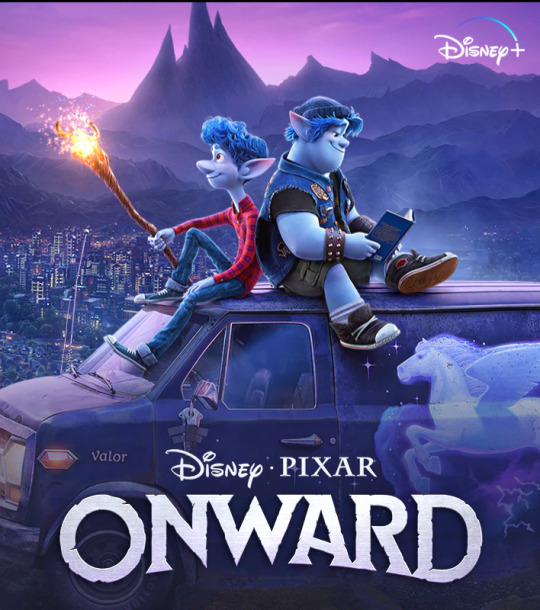
Onward (Disney+) Didn’t get a chance to catch this at the theater before they closed them down. Great movie, but gosh. Why does Pixar always pull at the heart strings like that? I was quietly crying to myself at the end. I’m glad we made our living room dark theater-style, otherwise my kids would have seen me all torn up.
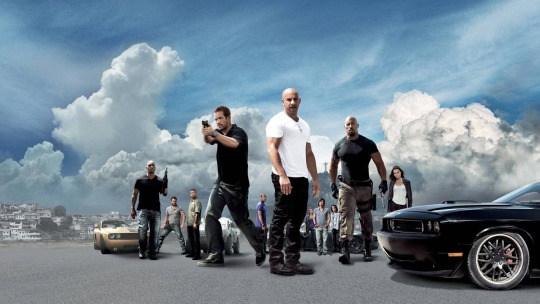
Fast and Furious 5-7 (Fast Five - HBO, The Fast and the Furious 6/Furious 7 - Digital) I ended up not watching the entire series. There is a great trilogy within the series, 5-7 was that trilogy. Fast Five was the best of the FF franchise and where it perfected their movie formula. It was like an action Ocean’s Eleven with cars. 6 and 7 expanded on that formula, upping the humor and ridiculousness factor. 6 had the exits of the Han and Gisele characters (they found a way to tie in Tokyo Drift to the rest of the series, Gal Gadot was on her way to becoming Wonder Woman for DC). And 7 had that great ending with the tribute to Paul Walker to the sounds of Wiz Khalifa and Charlie Puth.
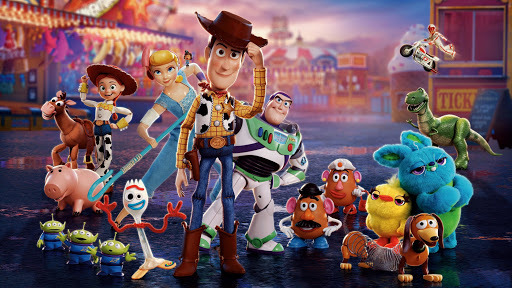
Toy Story 4 (Disney+) Another Pixar hit. Didn’t hit me quite as hard as Onward or Toy Story 3 did emotionally, thank goodness. I thought this story was over the way Toy Story 3 ended. But Pixar did a good job adapting to prolong these characters stories. It did feel like it was a bit of two and three combined looking back. Still very good, Pixar knows what it’s doing.

The Marvel Infinity Saga (Disney+/Netflix/Digital) Leading up to the one-year anniversary of the release of Avengers: Endgame, I went through and rewatched all 23 MCU movies. This time, I went in chronological story order by starting with Captain America - The First Avenger. I chronicled the order I watched in my last post. Even after viewing many of these movies multiple times, I’m still amazed at how much I enjoy them and the scope of what Marvel was able to achieve leading into the climax in Endgame.
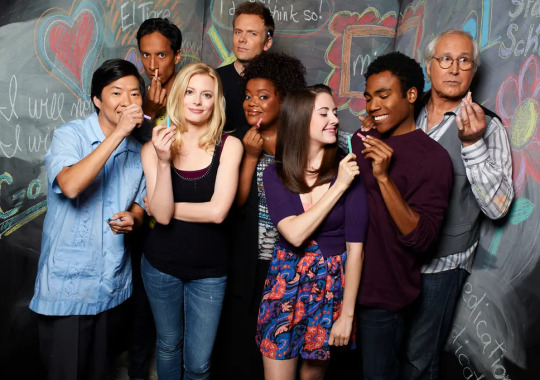
Community (Netflix/Hulu) I loved Community on its initial run on NBC but never watched any of the episodes when it was on Yahoo for its sixth season. It has been great to rewatch the meta-humor and sitcom trope parodies. And since Ken Jeong and Joel McHale started their own podcast called The Darkest Timeline (half COVID-19, half Community pod), it has been a good companion viewing.

The Back to the Future Trilogy (Netflix) Recent add to Netflix for easy viewing, these movies have been a favorite of the Mitra boys since childhood. Upon viewing as an adult, there is some humor that I didn’t recognize as a kid that is hilarious to me now. It is also crazy how well this teen time-travel sci-fi comedy works. Some of the effects in Part 2 are dated and 2015 didn’t quite end up the way it did in the movies. But overall very enjoyable on the rewatch!
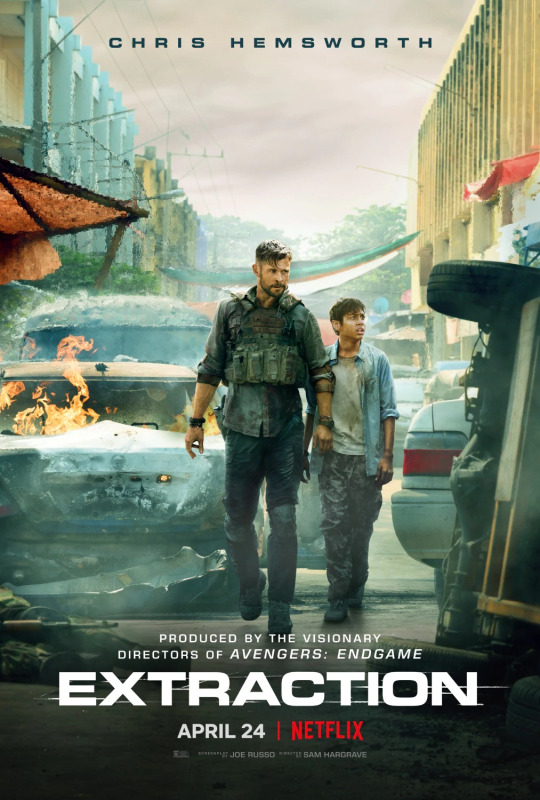
Extraction (Netflix) High budget action flick funded by Netflix? Written by the Russo Brothers? And staring Chris Hemsworth? I’m in! Directed by long-time stunt man and Russo Bros go-to stunt coordinator Sam Hargrave (you can tell the Russo influence). It has an awesome 15ish minute one-shot action/chase sequence that is top notch. Don’t think much about the plot or the controversy of cultural representation, just enjoy the action.

The Mighty Ducks Trilogy (HBO) Another childhood favorite of mine. Nevermind that the hockey itself isn’t accurate. This is about pure fun for an hour and a half at a time. Come for the hi-jinx, stay for the heart. Triple-deke, knuckle-puck, taking out the trash. And leave it out on the ice!

The Harry Potter Series (Blu-Ray/Digital) This was not a go-to for me until Linda made me watch the entire series. I guess when the first movie came out, it was too much of a kid movie for me (I was a high school senior at the time). But from the second movie onward, it felt like the storytelling and movie making got better and better. The Deathly Hallows was an epic ending, even if they did change the ending from the book. I didn’t watch the newer Fantastic Beasts movies along with this though, my wife did.

Westworld - Season 3 (HBO) Recently got HBO back, so I caught up on Westworld Season 3. I haven’t rewatched the previous seasons yet, but I may revisit it soon. Season 1 was spectacular, Season 2 was confusing as hell but still entertaining. Season 3 is somewhere in between, expanding on the ongoing storyline. It was more straight-forward because its storyline is in the “real-world.” For those of you that have watched, didn’t you think it was highly ironic that the Incite ball was basically the AT&T logo? (AT&T is the parent company for WarnerMedia and HBO)

The Last Dance (ESPN/ESPN+) The Michael Jordan docu-series has been a god-sent for sports fans devoid of live American sports for the past couple months. Is it Jordan-biased? Sure. But it is full of drama and intrigue and full of nostalgia. The NBA had commissioned a camera crew to follow the 1997-1998 Chicago Bulls on their run for their sixth NBA championship. Jordan owned the controlling rights to the footage and unlocked it after the 2016 NBA Finals. So this documentary was years in the making and with the pandemic the release date was moved up. Although it featured a lot of unseen footage, it also chronicled the years leading up to the 1998 Bulls title. The last 5 Sundays have been awesome.
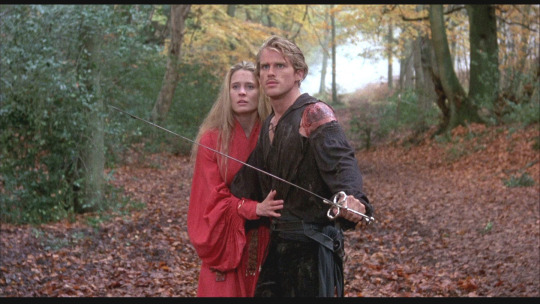
The Princess Bride (Disney+) I haven’t watched this movie since I was a kid. It wasn’t one of my recurring watches back then. So this was actually my second viewing of this movie ever. I found it quite enjoyable. It was cheesy, but fun, and a good family watch. One of the many older titles available on Disney+.

Scoob (VOD) My kids had some of the older Scooby Doo episodes on DVD and watched them when they were younger. This was a fun revisit for them and for us as parents. It was actually cool seeing a lot of the Hanna-Barbera characters in one movie. We watched this shortly after finishing Community, and my kids recognized Ken Jeong’s voice as Dynomutt. My daughter hilariously shouted “Senor Chang!” when she recognized him.
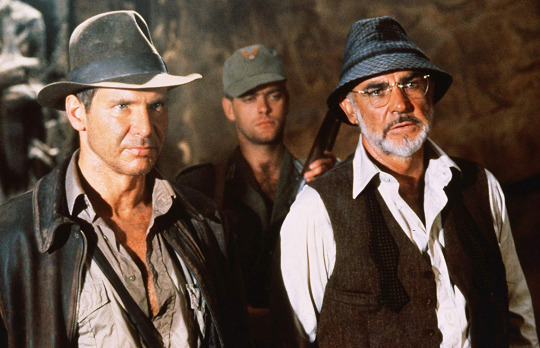
The Indiana Jones Series (Netflix) I introduced my son to Indiana Jones a few months ago watching Raiders of the Lost Ark. He loved it. He lost a little bit of interest during the Temple of Doom, I think the character Short Round lost it for him (character hasn’t aged well). The Last Crusade reclaimed his interest. Harrison Ford was at his natural apex playing Indiana Jones. I did not watch the Kingdom of the Crystal Skull. I didn’t feel the need to revisit that installment, while it was enjoyable the alien ending ruined the lead up to it.

The Dark Knight Trilogy (Batman Begins/The Dark Knight - Hulu, The Dark Knight Rises - Digital) Every few years I try to revisit this series. It is the best thing DC has ever put out cinematically. While Begins and Rises is more comic book, TDK is a straight crime drama set in the world of Batman. My favorite is Rises, but the absolute best comic book movie remains The Dark Knight, even with the advent of the Marvel Cinematic Universe.

Jurassic Park/Jurassic World Series (Jurassic Park/The Lost World: Jurassic Park - Blu-Ray, Jurassic World - Digital, Jurassic World: Fallen Kingdom - Cinemax) The original Jurassic Park is such a great movie. Rewatching, it’s crazy how well the effects for the dinosaurs hold up. Steven Spielberg, Stan Winston, and ILM did a great job mixing animatronic and CGI dino effects that stand the test of time. The Lost World was enjoyable but not as good as the original. I skipped JP III, such a bad movie. Jurassic World was a good way to reboot the series, basically a remake of the original but incorporating a lot of references to it. I just finished Fallen Kingdom today. Although Fallen Kingdom was entertaining, it fails to recapture some of the magic of JP and JW.
I’m not sure what I will hit up next. I might hit some Keanu Reeves movies like Speed, the Matrix Trilogy, and/or the John Wick Trilogy. Maybe Top Gun. Maybe rewatch Friends or How I Met Your Mother. Maybe something on HBO Max when it comes out like The Fresh Prince of Bel-Air. Maybe Terminator. Possibilities are endless, at least until some American sports return.
2 notes
·
View notes
Text
5 Game Design Tips to Help You.
Game design is hard. It takes a lot of time, planning and is, essentially, the core of a game. I mean, within game design you have visuals, graphics, level design, soundtrack, the objectives. There’s really a lot into it.
1 - Making a Game Feel Alive
To make a game feel alive is kinda easy, but people seem to keep forgetting about it. There are a lot of ways to make a scene feel alive, and I’ll cover some of them.
Make Nature Feel Natural
That should be an obvious one, but if you didn’t think of that, here it goes. You could make trees bend to the wind, grass shake when the player steps on it, birds that fly away when the player gets close to them, and much more. There’s really no limits to creativity.
Air Particles
Look around. Look at a window, where there’s light coming in. There’s a chance that you’ll notice some dust or something like that floating around. Your game should have that too. It doesn’t need to be crazy, it’s just a subtle effect.
Interaction
Don’t you love to blow those old crates to pieces? And to cut that grass and get a bit of XP? Or to get a hidden item by interacting with a tree? Or even to walk by and see that grass waving at your touch? So, if those things are in other games, why aren’t them in yours?
An Example in a Video
Blackthornprod explains everything I told really well. I recommend you to watch his video.
youtube
2 - Mechanics and Challenges
A level should be fun to play. It doesn’t matter if your game is based on cubes. Visuals don’t make great games, at least not all alone, even if it helps to sell a game. Always remember that.
Now, what makes a game great? Well, a lot of things can help, that’s for sure. Two of them are Mechanics and Challenges. If a game has great Mechanics, but poorly designed challenges, making it too easy or too boring for the player to surpass the game, the game will fail to entertain and, most importantly, to sell.
But that doesn’t mean that both of them need to be perfect. That’s because, by having poor mechanics and great challenges, challenges that make a great use of those mechanics, a player can and will get entertained.
Creativity and patience are the masters here. If you don’t feel creative enough to create a complex and fun mechanic, that’s no problem. You just need the creativity and patience to figure out how to make a simple mechanic fun to use, in interesting and unique ways.
An Example:
Let’s take a look at Super Mario Odyssey. It’s a great game, no doubts about that. But, let’s take a look at the core mechanic of the game; the mechanic that is the center, the root where the game’s tree grew around: the hat throw. Yes, you beat the game throwing hats. Mario’s hat. Doesn’t that sound silly? But what if I told you that you can control enemies when you throw your hat at them and that you can use their abilities? Now it sounds a lot more interesting, right?
3 - Polishing
Polishing is a damn important thing. The more you polish, the better your game will get. The better the game, more players will get entertained and hooked at it. Simple math, ain’t it? But, how does one polish a game? What is polishing after all?
Well, polishing is nothing more than tracking and solving problems. To find something that can be improved and improve it to its greatest level.
Example:
As an example, I’ll use my game, Land Of Enchantments. I’ve made a lot of trees for it, but that’s when I first started the project. I didn’t have a clue on which would be the visual style of my game, so I kept experimenting. Recently I’ve realized how ugly they are and I made an upgrade to them:

I found something that could be improved and I did it. If I were to examine every bit and pit of Land Of Enchantments, I’m really sure that, with time, the game would look like an AAA title. And that’s something that anyone can do.
Now, of course, experience counts, but if you never try you’ll never improve your skills, right? How long do you think I spent polishing this post you’re reading?
4 - Designing a Great Level
Well, there’s no secret formula to it. All I can say for sure is that you need to experiment and put people to play your game and test it out.
But I’ll try to help by giving some steps to follow and maybe improve or worsen the results. Be careful.
Choose the Mechanics
First of all, pick all of the mechanics that you want the player to learn and/or use. You’ll develop the level around those. Also, pick some already used ones for consistency’s sake.
Plan
Always plan everything you are putting in your game. Never add something just because you feel it is cool, you can end up with hours thrown away. Level designing is no exception.
Grab a piece of paper and make a sketch, even if a rough one, just to idealize what you want to do. Design the level around those mechanics you’ve chosen. Make them the foundation of your building. Then, weight the pros and cons of everything you’ve added in.
By doing that you’ll find things that probably wouldn’t have worked out so well, and you’ll be aware of things that may harm your game. You’ll also know what works and learn some things that may be used somewhere else. Who knows?
Sketch and Test
Make a simplified version of the level, with little to no detailing. You’ll want people to test that. Think of it as an Alpha version of the level. By putting people to test it you’ll learn what’s way too hard to accomplish, what’s too easy, things that should be more obvious for the player, etc.
Finally, Make it Awesome
Once you’ve made all of the adjustments and the sketch is already working, then go for it. Now you have nothing to lose but time making sure that every bit of that level feels like it’s got some bit of life to it.
Music
The music is one of the most important things when it comes to games. A song can drive the player’s emotions to everywhere you want to. A note off and you can bet that the overall feeling changes. Analyze the level once more, and then think of what do you want the player to feel. Make a theme for that level. Make a more intense version of the same for when the player faces an enemy. No song or long pauses can lead to tension in a really dark game.
But pay attention to the music, and please, be careful. The wrong soundtrack can ruin a game.
5 - Story
Stories don’t really sell games when the game is not good. If you’re making a bad game, I’m sorry bro, but no great story will sell it. Well, maybe it will, but the odds are that it won’t work.
With that said, I believe that Story is the second major part of a game, with the first being the Mechanics and Challenges. A game doesn’t need a good story to sell and be fun, but a game can’t sell only telling stories.
I can’t tell you how to write a good story. That depends on your ideas. I can give you a few tips, of course, but you should adapt those to your game.
Make a core concept, make sure to add a few climax moments, and an evil villain always supports a good story.
Conclusion
These were my five tips to help you with Game Design. I may say that I had no clue whatsoever on what I would write when I first started this post. Just like with any other human, I may be wrong. I can really be wrong. So, don’t take my words for granted. You’ve listened to what I think, and you should listen to what other developers have to say too.
Do you want a pro tip? Ask. Ask how did Notch come up with the idea for Minecraft. Ask to Rare how did they make those grass shaders they use on Kameo: Elements of Power. But, more important than asking, you should listen, because people always have something to teach.
Here’s another really good YouTube channel: Game Dev Underground. He really knows what he’s talking about.
That’s it guys, I really do hope you found something useful here and that you’ve learned something new. Follow me on Twitter so that you can vote on what I’ll write in my next post. Bye!
11 notes
·
View notes
Text
Interview with SpaceGodApollo (11/2/18)
Interview occurred on “No Pulp Radio Show” with DJ Odyssey, Ishaan Pota and Lily Frankel
This interview has been edited and transcribed for concision with some questions edited for clarity by Lily Frankel
DJO: So for those who don’t know you are, like where are you from?
SGA: Oh shit, alright, so I was born in Houston. And then honestly my childhood roots were all based in Pasadena, my grandparents, and like my sister and shit. And then, uh, shit, after that, that’s when I started living with my dad, uh, in Missouri City. And uh, yeah, shit was kind of rough in the beginning though, cause when my parents got a divorce, I didn’t see my dad for like, four years. So I was with my grandparents and like shit was always rough over there cuz like my family, like, they kind of fucked up. And there’s some shit I had to go through and I had to see and it fucking sucks, but if I didn’t go through that shit I wouldn’t be where I am today, representing my grandparents the way I am today.
DJO: Would you say music is kind of like an escape for you?
SGA: Definitely, man. I think music, for anyone that’s like depressed out there and they don’t have an outlet where they can seek help, it’s like, music is something that can be personal to them, and only them. And they can carry that with them for life. And it’s like, there’s artists that have affected me, that are going to affect me for life. And I’m always going to be so grateful that... God put them along my path, because it truly did help me and guide me as a person.
DJO: So when did you decide that being an artist is what you wanted to do as a career?
SGA: Damn, man. I remember when I was like 11, 12, I started DJing, and I wanted to make like dubstep because skrillex was hype. And I made like a badass, like, remix of Ellie Goulding, her cover of “High for This” by the weekend. That shit was fire, bruh [laughs]. And I was like 12. And I actually got it up on youtube right now, to this day, but uh, shit after that I was like uh, no, what am I doing, I’m young as hell [laughs], like I’m trippin’ thinking I’m finna be some kind of DJ. And then uh, I started getting really into RNB Music, and I really really started getting into like, just vocalists in general, that shit, it just amazed me how some people’s voices could be so powerful that it can affect millions and millions of people. And that shit really inspired me and it made me want to do something in my life that would benefit, like, more than I could ever imagine. And It was probably around like eighth grade, freshman year that I was like, yo, like, I want to be involved in music. I’m not sure how yet? But I’m going to start trying. And I spent a good ten to like, twelve months, just writing every single day song, song, song after song. I missed days of school cause I kept getting in trouble just sitting on my phone with earbuds, like writing lyrics because I was fucking addicted. And uh, I’d miss school and like, literally the whole eight hours of school that’d be going on? I’d be in my room just going off writing and writing and writing perfecting my craft. Studying wordplay, rhyme schemes, all the cadences, everything. And eventually I was like, yo, like, I’d never sing in front of nobody but when I was young my sister used to get singing lessons? And so I would always, you know, that’s my sister, I looked up to her, I would want to hang out with her and see her do her shit. And uh [laughs] I actually learned a lot from it. I would go, like, my own private, when I’m in my room, like really young, I’m talking like five or six? And I would take what she would learn from her instructor and like apply it to myself, but in secret, for so many years. And uh, shit, that’s when I met Christian, freshman year, like first day of school, and like, we just became boys. He tells me he wants to be a photographer, I’m like bro, like, I kinda want to be like, some kind of artist, whether it be singing or rapping, I don’t know yet. And then he was like bet [laughing], I’ll be your photographer, let’s do it. And I was like... It just naturally came together.
DJO: So my next question is, with the music scene so saturated with new up and coming artists, what do you do to separate yourself from everybody else?
SGA: Listen to all types of different music and find a way to respect it, and each its own. Like I will pull up, like, 40s, songs, from like, the war. And sad songs that were like, made to be sad, and try to understand what attracts people to sad songs. And it’s like, when it comes to me, I feel like every song I’ve put off out the jump has been extremely different from the other. And I feel like for me it’s all been, like, just how I’m feeling in the moment, how I’m feeling in my life. I take time dropping my tracks because I want to live different chapters of my life before I put out something that’s like, my baby, you know. That baby is developing while I’m developing as a person too. And it’s like, forever evolving. But then it’s also just like my sound is just like, forever evolving. I’ve got songs coming out like, if you want to find something that sounds like that, there’s only one place you can go. And it’s like, that’s what I’m trying to make the gold-standard for all my shit. Every song, I want it to be unique and where it’s one of a kind.
Ishaan: Who are some artists today that you draw inspiration from?
SGA: Artists today I draw inspiration from, man. Alright, like, no particular order, but like: of course, Kendrick Lamar, King Kendrick pulls true to me and a lot of like where my... my work ethic comes from, I see his wordplay and I’m like, man, this guy is a monster, he’s a freaking beast, he’s not from here [laughs]. Like, how can I compete with that. And I’m like, the only way I can compete with that is focusing on myself, keeping to myself and working fucking hard. But along with Kendrick Lamar, shit, I got, Future. Young Thug. Travis Scott of course. Shit, he went to, we went to the same school, uh, knew him way back, my sister was tight with him way back. And uh, one of the big things, also, about, you know, staying lengthy, is like, I could have been that person, you know, knowing his siblings and stuff, and been like, hey, please show Travis Scott my music, we went to the same high school, we’re friends, blah blah blah. But it’s like, I ain’t ever do that. I ain’t ever tell my parents about my music, I ain’t ever tell my sister about my music. I wanted this to be something that I accomplish on my own. And it would really make me feel complete in my life and everything and it’s something I love and want to do forever. And uh, Travis Scott definitely showed me that music can definitely be more than a hook and a verse. You know, he showed me the future and the way sounds are evolving, and you know, the way softwares and things like that, midis, are evolving, shit can get ridiculous [laughs] in the future. And it’s like, I just want to become one of the greatest artists of all time, that’s definitely the ultimate goal.
Lily: Do you think that, for you, that comes from lyrics?
SGA: For me? I think a lot of it—I feel like it’s all one big, not necessarily formula, but everything has to like, it has to fit, it has to make sense. It’s like, if I’m going to have a beat that sounds like it’s retro, it sounds like I’m taking you back to a different time, I’m going to rap in a way, or sing in a way, that’s from that time. I’m going to pay homage to that and respect it, and also put my own swagger to it and my own... my own generational sound to it and really make it my own. And like I’ve done covers of songs by like, Billie Eilish, and I’ve like completely altered them and changed them and made them completely different.
DJO: So you’re performing at Complex Con this year. How did that even go down? How did the booking go down, what are the details behind that if you can elaborate?
SGA: Yeah, basically, this past year, like, my dad, uh... He had gone to a Jamba Juice and like, in the nearest town center, and he had heard my song playing in Jamba Juice. But he didn’t know it was me. But he liked the song. And so he had the workers, cause he goes there, he’s like a daily person, and so he had asked the workers, like, what song is this? I’ve never heard this on the radio. And they were like, oh, it’s this guy named Ricky Apollo, he graduated from Elkins recently—my school—and he’s like twenty-something, but he makes really cool music. And my dad was like, Ricky Apollo? And I’m sure he like was like, that voice sounds familiar, there was no autotune or nothing. And just so everyone knows, it was my song “Feel.” It was actually my second song I had ever written... yeah, ever written, ever released, ever. And uh, thankfully, by like, the graciousness of God, XXXtentacion had found that song before everyone, and he had reposted it, and that’s when I got, like, my first little spark of exposure. [...] So my dad had asked about how that song, where that song came from. And he calls me and he’s like [affects a slightly older, higher-pitched voice], “hey do you know, uh, who Ricky Apollo is?” he goes, “is that you?” And I’m like, “yeah.” And then he’s like, your song is... you make music?” And I’m like, “yeah.” And he’s like, “it’s playing in Jamba Juice.” And I was like, “really? That’s cool.” And he was like, “what? Are you joking?” And I’m like, “nah.” [laughing] “I guess you had to find out sooner or later.” And then he immediately told my sister. And my sister freaked out because, you know, like I said, when she was younger she always wanted like, to sing, and she wanted to be a singer. And she’s a fucking incredible singer. And I’ll never be at her level [laughing], but uh, no yeah, her vocals are... she’s blessed for real. Like she’s... if you think my voice is good, it’s like... her shit’s on steroids. Like she could do opera. But uh, so my sister found out about it and whatnot. And of course, she’s my sister and she loves me, and as much as I wanted to do it alone, she was like let me help you. I want to be a part of this, I want to do this together. Because I feel like [voice breaks]... our whole life it’s like... It’s really just been me and her... And like... for her to like, feel that way? And want to help? It means like, it means everything, you know. And so she, actually, her boyfriend is a DJ. And uh, he performed at Voodoo just last weekend. His name’s Swaylo. SwayloNights on Instagram, shoutout him. Shoutout my sister, Lizzie Aguirre. So they’re actually both managing me at the moment. So Noah, who is my sister’s boyfriend, the DJ, he has a friend who is the event coordinator at Complex. And so he was like, hey man, this kid’s got a lotta talent. And I want to help him so badly and I want to reach out to as many people as I can, is there anything you can do. And the guy was like, yeah, I’ll check it out and see what I can do. And he listened to it, he got back to him. He said, yo, this is crazy, I’m gonna let the higher-ups get a listen to it. And uh, play him, like these songs, that, you know, I had chosen that I wanted them to listen to? And uh, they had all loved it, and they were like, yo, we have an open slot, let’s fly him out here, let’s get him the hotel, let’s get him the whole package, let’s feed him. And I’m so grateful for that man, it’s crazy. I remember he was like I’m gonna get back to you in a week, I don’t know if it’s for certain.
DJO: Yo that must have been the longest week.
SGA: Oh my god, you have no idea man, I was like, I was hitting the sauna and the sweat room like every fuckin day, just trying to keep my cool, tryna stay relaxed, I was like, it was definitely going to be, I knew it was going to be the biggest moment for me, and I knew it could definitely jumpstart. literally. Everything. And there’s endless possibilities, but uh, yeah, that’s really how it all came together. And after that, it’s like, I’ve got Forbes in my email, because they’re like, dude, you’re young as hell, how did you get on this line-up, and it’s like, we wanna know more about you. And it’s like, they wanna talk too. And it’s gonna be after my performance, and I’m the first one? Starting the weekend? Of all of Complex Con? And, oh my god, am I so ready, to fucking set everyone’s mind ablaze, bro. I want everyone to be hype as fuck and get ready to fucking rage all weekend, get fucked up, and have an amazing time that you won’t remember.
Can you walk us through your creative process?
SGA: Yeah, so, definitely, see when it comes down to my creative process, it’s like, okay, I’m driving a four hour drive from Austin to Houston, like whatever, like I’m bouncing around, and it’s like all of a sudden [snaps] shit just hits me, out of nowhere, a concept, and I’ll quickly take out my phone, open my notes, write a concept, it’s like, this is the type of song I want to put together. [...] And then, uh, later I’ll go home and reflect on that, or maybe I’ll spend two months, like just living life, and then I’ll come back to that and be like damn, I really want to talk about that now. And then I’ll just go to writing, for hours on hours, days on days, and then when it finally comes down to a studio sesh, Imma get like five, six hours for that one song, and I’m gonna fully, uh, invest myself into making that song fucking incredible in the best way I can possibly make it. [...] When I get like in the studio it’s really all about like, we’re all gonna be there, you know my engineer, Matthew O’Neil, he’s a huge part of the creative process. Me and him, we really, we have a like, unspoken chemistry that we just... we don’t even need to talk about, it’s just laughable at this point. We bounce off of each other’s ideas like, like at the speed of light, it’s crazy. I’ll just be in the booth, I don’t have to exit for like eight hours, we just, we know what we’re talking about, we know what we want to do, and when it’s time to experiment, it’s like, I really let him show me, and like show me what we can do with pro tools and stuff like that. And I’ve taken the time to have studio sessions where I simply just learn about the plug-ins and like learn about shit I can try to experiment later, you know, and like sit on and think about. And I feel like that’s really important, I feel like a lot of people think they can just write a verse and a hook, go to a studio and record it and that’s it, but then it’s like, you realize you just made a very boring song, you know. And I feel like, my music, I try to have a different dynamic, a more exciting dynamic, it’s like, Imma keep the same core vibe the whole time, but I’m gonna keep you on your toes with what’s about to happen next, whether the beat’s gonna get chopped and screwed, fuckin Houston style, or like, shit, we’re gonna come in with a like a choir of like my voice, or I’m all of a sudden gonna hit a falsetto, that you have no idea I can even hit that range, and it’s like, it’s really, I really like surprising people and I feel like that’s why, all my releases, I’ve always released it like boom [snaps]. Surprise. Something completely different. And they’re like damn, like, people will be like, oh, make more RNB, make more—do something jazzy, do something trap. And I’m like alright, I’m gonna mesh it all together. I’m gonna get a jazz beat, I’m gonna sing it in RNB, but then my words are gonna be about the trap [laughter]. And then I’ll take that from like, real-life experience, like obviously my parents don’t know this but like I’ve been trappin for a minute. And like that’s how we gotta make a lot of shit happen. Because I can’t be working a 9-5 and think I’m gonna be fucking inspired to make some music that’s gonna touch people’s soul. I’m not gonna do that sitting behind a fucking counter, scanning barcodes. I’m gonna do that from being out, with my friends, experiencing life, experiencing adventures, taking trips and like, going, getting one-way tickets to fucking LA for Complex Con.
How do you stay centered? Because the life of an artist, it has so many ups and downs and unpredictabilities, what do you do to center yourself and just keep sane, and keep the team sane? SGA: Shit, man. [laughs.] When it comes to keeping the team sane, you gotta be more insane than everyone else combined. You have to be able to deal with your own demons and your own negative thoughts extremely well, by yourself, in order to take care of other people, I feel like. I feel like—and that also transitions to relationships. It’s like, I can’t take care... of another girl... if I’m not right with myself. And it’s like, if I’m not good, and if I’m not in a good mental state, and I can’t even get myself in control, if my girl is hurting or she’s going through some shit, how can I be there for her if I can’t be there for myself. So I feel like a lot of keeping the team sane is really just like me keeping my composure when shit get crazy, and when shit get wild, when like, things go south, whatever, I really like, you gotta be a leader sometimes, you gotta be like a red power ranger. [DJO laughs.] Like you got the whole team, you got the whole team, but like, you gotta, you gotta, you gotta have some guidance in there.
DJO: Just turned nineteen, so for you to already kinda be encompassing this leadership quality, and just being like hey, I’m grounded, I’m centered, and you know, because, I understand the team kinda feeds off that.
SGA: Honestly, it’s like, as much as it sucks, that like, cause like I fuckin, honestly, honest to God, like I fucking hate my childhood, but if it wasn’t for my childhood, and me and my sister just being, like, by ourselves, going through our shit, it really helped us mature a lot faster, and I feel like that’s why I didn’t fuck with a lot of people in high school, and even in middle school, because I just had, I’ve seen a whole fucked up world that these kids at the time hadn’t seen. And I was, like, different in the head, but like, you know, obviously, like, I wasn’t going to make a big deal about it, it was just, Ima just keep to myself and worry about myself and my fam and making sure my sister’s good, my momma’s good, my dad’s good, my friends are good. Everyone. You know.
DJO: If you feel comfortable sharing, like, what’s one of the most fucked up things you’ve seen. Or, the most fucked up thing you saw.
SGA: Shit. One of the most fucked up things I’ve seen, is... my uncle, coming home, one day, uh, to my grandparents' crib, and like, I got other uncles there, at the time, and like, they.... You know, they, they, they could be fiends back then and they would be fightin, over like crack, because one of them would be like selling crack or have crack and [takes a deep breath] they fuckin, they get fucked up, and then they fight each other over it and then my grandparents tried to get involved, get them out of it, and they’re like in their fucking late eighties, nineties, and, and then, my uncle, beat my grandmother.... [voice breaks] and my grandfather, you know, like..... right in front of me, and it’s like... when you’re that young, and [crying] you care about those people, that shit hits different. And that’s when I would, have to, realize I can’t do anything. And then uh... I’ve never talked about this [laughs weakly]. [A moment of quiet. His friend rubs his shoulder.]
DJO: I mean, we could stop if it’s getting a little bit too deep, man.
SGA [his voice is quiet. He’s still crying. His friend is still rubbing his shoulder.]: Nah, it’s cool, it’s just... it’s just hard to dig back. I try so hard to like.... not think about it, but... it’s tough. And like that uncle, he’s, you know, he’s rotting in jail [crying], and... you know, he’s my uncle, but... he’s made his choices, and so, you know? [Exhales.] He’s got to pay for that shit I guess, bro. Nonetheless, like.... just gotta keep moving forward. Keep doing what we’re doing.
L: You talked about earlier, a little bit, meditation on the plane and spirituality, that kind of stuff, do you think that’s something that’s helped you and translated into your music at all?
SGA: Yeah, just like I’ve said, you know my sister, you know, she lived through the same fucked up shit, and so she’s actually a fuckin professional yogi, like, instructor. And she’s very spiritual and she found her own way to cope with what she goes through, through her lane, and I found mine, and I feel like we really help each other as a [voice breaks] family, and it’s... and keep each other strong, and she really showed me how to [voice breaks] keep my sanity, and keep myself... together, even though I have so many regrets... growing up, but. [Takes a breath.] Yeah, on the plane I really just had to get in touch spiritually and realize that... I’m doing this all for a greater purpose, personally. And it’s like... I feel like the reason that I could give a fuck about fame or fortune is like why I try so hard. It’s cause like, it’s really, it’s really for everyone around me. [Crying.] And I got so much love for the people around me. Real talk. I’d kill—I’d kill for my people.
DJO: So let’s get on a little bit lighter note, why don’t we talk about the track we just played for the people [“Hol’ Up”]? What was the process going behind that track? I remember when we were in the living room, we were talking about how it was one of your favorite tracks to develop.
SGA: One of my favorite tracks I’ve ever made, man. Uh, this producer, out in like... uh, I think he’s Norwegian... hit me up, like, didn’t even know English, like, talking through google translate, and he’s like, yo, I heard your shit, and like, it’s crazy. Check it—I do old school rap beats, I don’t know if you’ll like it, but fuck with it. And so I’m like, dude, I love old school rap, and I’ve always wanted to go down that lane, it’s just no producers right now, that I can get in touch with, are doing it well. And he sent me this beat and I knew, like, the way it had me moving? With no lyrics? I just knew, like, if I felt that way about it, I-I don’t have to write shit. Ima go in there and Ima go off my vibe and how I feel and when people hear it they’re gonna feel what I’m feeling and feel how I was in the booth. And when I had booked that session, me and Matt were like, let’s fuck around, let’s just re-spark the inspiration, let’s get back into, like, our hard-core work ethic, and we get like a 10-hour studio session, and we just... get a couple beats, put them together, free-style for hours, and we had put together like a 16-minute long freestyle. And it’s like, between my closest friends—it was never released, but between my closest friends, they still tell me to this day, like, drop it. And I think, uh, it’ll be something that’ll go on Soundcloud like years from now, just as something to look back on. And uh, cause that was my way of just like furthering, learning more about myself and my voice, and trying to hit extremes, in a completely, like... when you’re just high as hell, and a beat will literally move every fucking nerve in your body and it will just come so naturally. And so after I had literally done that for hours, like eight hours, and I’m like, damn, like, I’m tired as hell, let’s just chill bro, I’ve got this nice-ass old-school beat, let’s throw it on. And so Matt throws it on, immediately he’s like—he loves old school rap—and he was like, yo, like, this is fire, go get in that booth. And I was like bet, let’s get it. And then uh, we honestly knocked it out in probably like 25 minutes flat. Like, no autotune, ran through that shit. I had one thing written, and it was “hol’ up, wait, let me go out to your estate.” And we just ... ran that hoe. And that, I feel like that’s why it was so amazing to me, cause I thought like, I was so exhausted and like done for the day, nothing would come out, and it’s like—I had made the best song to me that I had ever—it was the most rewarding song to me, honestly. I feel like it was just: the ad-libs were perfect, my melodies were perfect, the vibe was perfect, and to me—it made me happy. And if it’s like, it makes me happy? I know if I can get the exposure, and get it out to millions of people, a good portion of them will like it too. And that’s all I need, to like, you know, want to keep going.
Listen to the full interview here and check out “Hol’ Up” and other SpaceGodApollo tracks on Soundcloud and Spotify!
#spacegodapollo#space#music#apollo#ucla radio#soundcloud#new music#college radio#interview#student media
1 note
·
View note
Text
Last One Chosen
Yup. Yup, we’re doing this now. I’ve got a pack of Coke, a few hours of sleep, and a favorite character, so, I present to you...Melvin fluff! (Partially inspired by @slytherin-unite‘s art over here..so give her a hand!)
Melvin Sneedly had never been the Team Captain of any game. Well, or one of the first chosen. In fact, it was usually reluctance that came with him being chosen at all to play in any team sport. Children gave him weird looks when he wrote out the drag equations on his forearms to swing the baseball bat at the perfect moment, or when he calculated the best trajectory for volleyball, usually succeeding with the perfect angle, though failing to gain significant force.
It was for that reason that he was typically the last chosen in Gym class or on the playground, sometimes earning a rough shove, punch, or knee to the gut when the yard duty’s back was turned. Once, that Kipper had shattered his glasses, and he’d been forced to go home early and miss Professor Gaylord’s neuroelectrophysiology demonstration just-just because he was brilliant...
He absently cupped a flower, recognizable as a sample of lycoris sprengeri, in his hand, stroking its soft petals for no more than a moment before he crushed it in his palm.
When he’d signed up for Science camp, it was supposed to be an invigorating experience to learn more about the principals of fields he didn’t know as much about, maybe do something productive with all the extra time where only delinquents were allowed to attend school. Instead, they dedicated maybe 43.436% of their time to education, and spent the remaining 56.564% on silly activities like fishing, toasting marshmallows, and physical past-times like soccer, which none other than George and Harold got to be Team Captains for.
Adjusting his glasses, he scooted forward on the grass, careful not to get verdant stains on his automatically-matched crisp white socks and listened to the calls, his gaze flickering back and forth as if a ping-pong match had unfolded.
“James McCall.”
“Abigail Bevin.”
“Rebecca Nguyen.”
“Maverick Schleisch..”
“Chris Osten.”
“Mac Turtledove.”
“Melvin Sneedly.”
Harold gestured to his position and smiled, and almost instinctively, Melvin sat up and glanced behind him. When it became apparent that no duplicate names had been placed in his cabin, he got to his feet uneasily.
“Aww, bro, you took Melvin? No fair!” George sighed from the other end of the field, still beaming.
Melvin trotted to the left team, his palms sweating, waiting for someone to tell him he had made a mistake somehow. Instead, the boy held up his palm in the social symbol Jerome Howitz students often used to greet one another, the typical response being to slap one’s hand against their’s. The blond squinted at him like anyone would a blown circuit board, baffled at his apparently-misdemeaning conduct.
“You...haven’t ever gotten a high-five before, have you?”
Melvin flushed slightly and scraped the toe of his sandal against the playing field behind him, arching his spine marginally in defense.
“Not everyone specializes in social rites, Harold Hutchins.”
“Fist bumps?”
“Intelligent people tend to have less friends than the average person. Therefore, being a straight gold-star student, my best friend is a hamster.”
“Uhh....Namaste?”
“Socializing is a waste of time that could be better dedicated to research.”
“Okay, um...have you heard that entropy isn’t what it used to be?”
At first, he remained confused. After a second, his face lit up and a short chuckle bubbled from his throat.
“There we are! You understand physics and stuff, how about playing offense?” Harold said, beaming with evident pride and tossing him the appropriate uniform color.
Melvin slipped it over his head and gave a thumbs up, merging into the lineup, forever grateful not to have been chosen last.
***********************************
As a seventeen-year-old graduate of Jerome Howitz High School, Melvin Sneedly framed his certificate, slipped it into its cardboard sleeve, and stacked it carefully in the appropriate box, allowing it to seal itself and hop onto the track down the stairs, giving a smile when it rolled down the stairs, across the living room, and onto the front porch of his house
“You ready to get this show on the road, Sport?” his father said, ruffling his hair. In response, he pulled a fine-tooth comb out of his shirt pocket and tugged it through his auburn locks, giving a slight nod.
“In a second..just gotta grab one more thing, and then I’ll be right there.”
In a formulaic fashion, he unfastened his prize photograph from where it hung above his bed, wrapping it carefully in one of his spare dress shirts and placing it between the textbooks in his backpack. Depicted were him, George, and Harold posing for their graduation, each wearing an identical grin and splattered in silly string. Throwing the weight of his bookbag across his shoulders, Melvin walked to his father’s car, stepped in, and cleaned his glasses.
Before long, the sun had set, and he watched the golden clouds roll down to the horizon calmly, one hand caressing the photograph in his lap.
Yep. It really had been one wild ride with those two.
Cheers to a half-dozen more.
#fanfiction#ficlet#captain underpants#cu#melvin sneedly#george beard#harold hutchins#coke like coca-cola#lycoris sprengeri#i hope nobody calls me out on the fact that#ahaha#lycoris is native to China#no ships please#aaa this was so much fun
61 notes
·
View notes
Link
This article is from 2013, but it’s worth remembering as to how we got to where we are now.
“Nintendo was slandered as a kids platform, not a leading light. Xbox put machismo, ultra-violence and chimpboys with backwards caps in the spotlight. Wedge, wedge, wedge.
“Gamers were handed a pre-packaged group identity via the propaganda machine of a mega corporation.
“It represented a time in my life as a developer that I'm not overly proud about living.”
Don’t misunderstand me. I’m not blaming Microsoft for things like Gamergate. I’m just pointing out that corporate manufactured culture greased the skids to help such hate manifest itself more easily.
Actually, just go read his whole blog post. It’s worth it if you want to understand how the sausage is made. If you don’t want to, or don’t have the time, I’ve added some quotes below.
You got the sense the pre-Xbox, 'gamers as bros' was a smaller subculture within the nerdy, whimsical hobby of games. Over two console generations, a highly cynical marketing team spent billions with no hope of immediate payback to shift the market. In an act of brilliant jujitsu, Nintendo was slandered as a kids platform, their historical strength turned against them. Xbox put machismo, ultra-violence and chimpboys with backwards caps in the paid spotlight. Wedge, wedge, wedge. Gamers were handed a pre-packaged group identity via the propaganda machine of a mega corporation. For those raised post-Xbox, Microsoft was an unquestioned Mecca of modern gaming culture. Dude. They made Halo.
Emphasis mine. Nintendo didn’t do themselves any favors with their historically rocky relationship with most third part developers, though.
There is a form to modern console games. If you've played the recent Bioshock Infinite, you can see the full glory of the vision. These are great games, especially if you know and appreciate the immense skill that goes into their creation. Each element serves a business purpose.
First there is a world rendered in lush 3D. This justifies the hardware.
Next are intermittent dollops of plot. These are voice acted because it is a quality signal. They feature intricately modeled characters on a virtual stage. This gives the arc narrative momentum and lets you know you've finished something meaningful.
Filling out the gaps in the 7-12 hours ride are moments of rote game play with all possible feedback knobs tuned to 11. Blood, brains, impact. Innovation is located at 11.2. This makes you feel something visceral.
Each element of this form is refined to a most perfect formula. There are crate-raised critics who make subtle distinctions between the 52 historical shades of grey. There are documents and research. If you are a creative working at or within a publisher, your higher purpose is to judge games based off their adherence to the form. The game is a product and consistency, much like that found in McDonalds fries, results in repeat purchases. As a publisher designer, you are someone with taste.
You police the act of creation. It is a job. It is a set of orders that come from above. It is your childhood dream.
Again, emphasis is my own. Anyone in a gaming fandom can probably remember when this change happened to their favorite small dev studio. (While I myself am thinking of EA, my first thought is Origin, not Bioware. Which I think is a topic for another post..)
As part of my personal journey, I've found that I'm driven by ideals that fit poorly with a highly gated console monoculture: What if games can connect people? What if they can improve the world? What if they bring happiness and joy to our lives?
These are important questions, and I’m glad one man took a stand enough to change his career to find the answers himself.
0 notes
Text
After 2016’s Suicide Squad, audiences had mixed reactions to the Harley Quinn: Birds of Prey trailer, (or should I say Harley Quinn: Birds of Prey now that the title’s changed). Some people loved it. Some people hated it. As for me, I decided to spring up two pigtails, spray them pink and blue, dot a heart onto my cheekbone, and head out like a giddy six-year-old, excited to see Margot Robbie bring one of my favorite crazy characters back to the screen. Boy, was I in for a surprise. But before I jump into that, here’s a quick film production recap.
“Do you know what a harlequin is? A harlequin’s role is to serve. It’s nothing without a master. No one gives two shits who we are, beyond that.”
Birds of Prey was initially announced in May 2016, ahead of the release of Suicide Squad, with Warner Bros stating that it was a spinoff film focusing on Harley Quinn and a couple of other female DC Comics heroes and villains, such as Batgirl and the Birds of Prey. Margot Robbie spent three years working on Birds of Prey and continued to present it to Warner Bros. until the studio felt the project was at the point it could be made. After a bunch of tugging and pulling and scrapping and editing, Warner Bros. and DC Films finalized a deal in April 2018, with Cathy Yan set to direct, making her the first female Asian director to direct a superhero film. Robbie was also confirmed to be producing the film under her LuckyChap Entertainment banner, as part of a first look deal she has with the studio. With all of that preproduction information out of the way, you may be wondering what Harley Quinn: Birds of Prey is about.
“I’m the one they should be scared of! Not you, not Mr J! Because I’m Harley Fucking Quinn!”
Directed by Cathy Yan, Harley Quinn: Birds of Prey portrays the return of Harley Quinn,
The squad.
(Margot Robbie), after her devastating breakup with the Joker. Upon the break-up, Harley is submerged in grief and struggles to move on with her life. However, the post-breakup blues are quickly subdued when Harley finds out that her breakup with the Joker places her as a red alert target for those she’s wronged during her time with Mr. J., especially narcissistic crime boss, Black Mask, (Ewan McGregor). And things only get more complicated when she crosses paths with pickpocketing kid, Cassandra Cain, (Ella Jay Basco), Huntress, (Mary-Elizabeth Winstead), Black Canary, (Jurnee Smollett-Bell), and Renee Montoya, (Rosie Perez). Will Harley transcend this web of complications and prove to herself that she’s something more than just the Joker’s arm-candy? And does this cluster-bar of interesting characters coupled along with lessons learned from Suicide Squad guarantee this film being an A+ show? Dissection time!
“Here’s the deal, Quinn. You need me!”
That iconic smile. 😀
When I replay the events of the film while typing this article, the first factor that appears in my mind is story. I have mixed feelings about the story. On one hand, it’s fun, entertaining, and an action-packed frenzy, much like our lovely leading lady. But on the other, it’s just that and nothing deeper. It follows a typical action movie formula with no improvisational ingredients added to our bland elixir. There aren’t any unexpected, gruesome obstacles that raise the stakes for our main characters and causes our hearts to pound along with the raising tension of the film. And there aren’t any moments that elicit any empathy from us or leave us in awe. It’s predictable and quite linear—very A-to-B. Yan could’ve created an unpredictable storyline to match Harley’s unpredictable, quirky personality, (aside from the visually pleasing manic colors painting the film). But maybe she wanted to play it safe after Suicide Squad? So I don’t blame her. Nevertheless, this may also be a good thing for someone who knows exactly what they want. If you want to just want to kick back, relax, and have the film serve as a spoonful of entertainment rather than a syringe of seriousness—by all means, go ahead. Heck, the characters also added onto that entertainment factor.
“YOU KILLED MY SANDWICH!”
Margot Robbie as Harley Quinn: flawless. Robbie is back in portraying the lovable,
Awaiting her breakfast sandwich.
makeup-caked psycho–and what a sweet goody bag treat it is. She completely satisfied my expectations in regards to how Harley would act in her own adventure, in real-life, etc. Robbie is perfect, and I hope she’ll return to whatever films Harley Quinn is needed in. Ewan McGregor as Blackface: entertaining and amusing. It was my first time seeing McGregor play a villain, and there wasn’t an awkward barrier that kept us from immersing ourselves into the film, like it sometimes happens with other actors. I’ve read from other reviews that some people considered McGregor to be too ‘cartoony,’ but I didn’t think that at all. Mary-Elizabeth Winstead was also fantabulous, (cute reference to the title. See what I did there? Har, har, har). But having said that, some of the characters could’ve still been improved. One big aspect of improvement that stuck out to me was the chemistry between the characters. Frankly, there could’ve been more of it. With Wonder Woman or Guardians of the Galaxy for example, (yes, I know I shouldn’t compare DC to Marvel), the characters were immensely entertaining by either being emotionally invested with each other and to the audience, bantering nonstop, etc. In Harley Quinn: Birds of Prey, Harley’s personality obviously shines through, but a majority of the characters are just kinda there in the movie with Harley. It would’ve been nice if they had been more animated or vivacious in their personalities, (aside from McGregor and Winstead). You only feel the chemistry between the characters towards the end of the movie, leaving the viewer feel a bit cheated. And because of that, the various characters’ background stories get swept under the rug as cliched, rather than fulfilling their potential of being engrossing and enchanted with personality. But having described the areas the film could’ve improved in, it’s not that bad, especially when compared to other bombing reviews.
“Get ready, ladies.”
Move over, Lady and the Tramp. We’ve got a new pair of lovers.
I recall someone in IMDB’s reviews calling Harley Quinn: Birds of Prey “an Antifa film,” (I know—hilarious and dramatic). Another as being “a DC chick flick” and “Deadpool 2 knock-off.” But I completely disagree with those. Sure, it’s not what it could’ve been. But that doesn’t mean that it’s bad. I’m still glad that it was made. It’s fun, entertaining, and great for those looking for just that.
Genre: Action/Crime
Rating: R.
Time: 1 Hour, 49 minutes
Final Verdict: B
PS: In case y’all were curious as to how my “giddy six-year-old” Harley Quinn fangirl looked like the day I went–here ya go! Enjoy the goodies, haha.
Here's a little Valentine's treat for you guys! Dana's Film Review: Harley Quinn: Birds of Prey (2020). Check it out! #harleyquinn #birdsofprey #harleyquinnbirdsofprey #margotrobbie #film #critic #filmcritic #huntress #blackmask After 2016’s Suicide Squad, audiences had mixed reactions to the Harley Quinn: Birds of Prey…
#action#birdsofprey#blackcanary#blackmask#cassandracain#cathyyan#crime#critic#ellajaybasco#ewanmcgregor#film#filmcritic#filmreview#fun#harleyquinn#harleyquinnbirdsofprey#huntress#joker#jurneesmollettbell#margotrobbie#maryelizabethwinstead#reneemontoya#review#rosieperez#suicidesquad
0 notes
Text
DualShockers’ Game of the Year 2018 Staff Lists — Travis’ Top 10
As 2018 comes to a close, DualShockers and our staff are reflecting on this year’s batch of games and what were their personal highlights within the last year. Unlike the official Game of the Year 2018 awards for DualShockers, there are little-to-no-rules on our individual Top 10 posts. For instance, any game — not just 2018 releases — can be considered.
Ah, the end of the year. What’s not to love? The holiday weight gain, arguing about politics with your family members, getting invited to a loud New Year’s Eve party that you really don’t want to attend. Of course, who could forget the piece de resistance of our year-end traditions: the end of year lists.
Yes, the lists. The good, the bad, the best, the worst, the favorites, the least favorites, the this, the that. Lists are all terrific, subjective noise; they’re inflammatory by nature, they inspire debate, they create a narrative.
A lot of people blame the proliferation of list culture on BuzzFeed, which I find unfair. We love lists! We’ve always loved lists! Who could forget God’s famous listicle, titled, “The 10 Commandments?” I can’t believe “Thou Shall Not Murder” wasn’t number one. Talk about getting robbed!
You know who else loved lists? King Hammurabi of the First Babylonian Dynasty. Code of Hammurabi? Now there’s a great list. “An eye for an eye?” An absolute all-time classic. Old Hammurabi, an absolute madman. Complete legend! Don’t even get me started on ol’ Saint Nicholas. Did you see who made it on the nice list this year?
I contemplated whether or not I was going to make a year-end list for a while. Unlike literally all of my DualShockers colleagues, I don’t own a PlayStation 4, and thus, didn’t really play a lot of the capital-B Biggest games of the year.
So here’s the deal–I’m going to list my ten favorite games of the year out of the games I’ve played. Despite playing a lot of older games for the first time this year, I’m limiting the games on my list to games that were released in 2018, or games that released a substantial update this year.
Lastly, if you think I’m snubbing God of War, Marvel’s Spider-Man, or Red Dead Redemption 2 in some weird attempt to be controversial, you’re wrong, pal. I simply haven’t played them and have absolutely no business evaluating them. Now, without further ado, here are my favorite games of the year.
10. Enter the Gungeon
Enter the Gungeon was my first roguelike. It was the game that inspired me to jump headfirst into the genre and brought me countless hours of exploring, shooting, and most importantly, dying. This year’s Advanced Gungeons & Draguns DLC brought a ton of great additions to the game and has worked to make every run feel effortlessly unique. Seriously, I have logged over fifty hours in Enter the Gungeon and I’m still constantly uncovering new things. I can’t recommend this game highly enough, especially for Nintendo Switch owners.
9. Halo: The Master Chief Collection
For many people, Halo: The Master Chief Collection was a great disappointment. Upon its launch, the game’s ramshackle online infrastructure effortlessly undermined its glorious promise. After all, who wouldn’t want to revisit those original Halo games on today’s Xbox Live?
While Halo 4 and Halo 5 have brought more modern (*cough* Call of Duty-esque) sensibilities to the franchise, the original Halo trilogy offered a unique FPS experience. Thankfully, as a result of 343’s 2018 update campaign, players can finally experience those games’ online matchmaking without janky connectivity issues. As it stands, The Master Chief Collection is not just playable, it’s ridiculously fun.
Check out the DualShockers review of Halo: The Master Chief Collection.
8. PlayerUnknown’s Battlegrounds
2018’s “Fix PUBG” campaign and the new addition of Vikendi, the game’s snow-themed map, have kept me hooked on the classic battle royale game. Upon booting up PUBG, I don’t even have the various optimization problems that caused me to lambast the game in the past. You can read my exhaustive thoughts on the game here.
Check out the DualShockers review of PlayerUnknown’s Battlegrounds on PS4 and PC.
7. Super Smash Bros. Ultimate
Similar to most Nintendo fans, putting Super Smash Bros. Ultimate on my end-of-the-year list was a no-brainer. The game’s new characters are fantastic, its quality-of-life updates are palatable, and most importantly, I don’t have a reason to keep my Wii U plugged in anymore. What more can I say, it’s Smash; it’s the tried-and-true formula made better than ever.
Check out the DualShockers review of Super Smash Bros. Ultimate.
6. Dead Cells
Dead Cells showed me how innovative a roguelike could be. Everything about this game felt so utterly satisfying. Additionally, the game’s upgrades make it considerably easy for fans new to the genre to hit the ground running and make good progress. I would recommend this game to just about any gamer looking for a challenge.
Check out the DualShockers review of Dead Cells.
5. Super Sportsmatchen
Super Sportsmatchen essentially flew under everyone’s radar. Evoking old NES titles like Stadium Events, the game is a fantastic party game for those looking to duke it out with one another in sports-themed minigames. Above all, Super Sportsmatchen is perfect for those that don’t feel like committing to a game of Super Mario Party, or those looking for some fun on a budget.
04. Joggernauts
Joggernauts is a beautiful, wacky, couch co-op game that will make your friends get mad at you. The game is simple– each player is a different color and only they can run into a creature of that color. Players take turns switching to the front to defeat enemies, collect keys, and complete other platforming challenges. It’s ridiculously fun and extremely challenging if you play with several people.
Check out the DualShockers review of Joggernauts.
3. Minit
Minit was the first game I reviewed at DualShockers and it remains one of my favorites of the year. Minit didn’t just challenge the way I thought about game design, it challenged the way I thought about time. In a world of oversized, bloated AAA games, Minit is a refreshing breath of fresh air.
2. Mario Tennis Aces
Mario Tennis Aces is going to be the next Mario Kart: Double Dash. People bought it when it came out, enjoyed it for a month, said “yes, this new Mario Tennis title is fun,” and will forget about it until the next one comes out. However, like Mario Kart: Double Dash, Mario Tennis Aces includes a treasure trove of interesting mechanics that transcend the tennis formula and will remain evergreen for years to come.
At the end of the day, as many others have already stated, Mario Tennis Aces is more of a fighting game than a sports game. Like all competitive fighting games, its meta is continually evolving, new content is regularly being added, and its die-hard fans are looking forward to the future. I hope this game sticks around for as long as possible.
1. Monster Hunter: World
Like a lot of people in North America, Monster Hunter World was my first taste of the franchise. Upon initially booting the game up I stopped playing it and wanted to return it. Unfamiliar with animation-locked combat systems and put-off by the game’s cluttered UI, Monster Hunter: World was initially too much for me.
One afternoon I decided to give it one last shot before selling it and oh boy, am I glad that I did. I spent the earliest weekends of the year sipping coffee and hunting monsters from the comfort of my living room. The game demanded a lot of me, forced me to learn, and I’m all the better for it.
Check out the other DualShockers’ staff Top 10 lists and our official Game of the Year Awards:
December 17: DualShockers Game of the Year Awards 2018 December 18: Lou Contaldi, Editor in Chief // Logan Moore, Reviews Editor December 19: Ryan Meitzler, Features Editor // Tomas Franzese, News Editor December 20: Reinhold Hoffmann, Community Manager December 21: Scott Meaney, Community Director // Ben Bayliss, Staff Writer December 22: Ben Walker, Staff Writer // Chris Compendio, Staff Writer December 23: Grant Huff, Staff Writer December 26: Jordan Boyd, Staff Writer December 27: Max Roberts, Staff Writer // Michael Ruiz, Staff Writer December 28: Rachael Fiddis, Staff Writer December 29: Steven Santana, Staff Writer // Tanner Pierce, Staff Writer December 30: Iyane Agossah, Staff Writer // Travis Verbil, Staff Writer // Zack Potter, Staff Writer
The post DualShockers’ Game of the Year 2018 Staff Lists — Travis’ Top 10 by Travis Verbil appeared first on DualShockers.
DualShockers’ Game of the Year 2018 Staff Lists — Travis’ Top 10 published first on https://timloewe.tumblr.com/
0 notes
Photo

New Post has been published on https://shovelnews.com/battlefield-vs-single-player-stories-are-the-right-way-to-do-war-games/
Battlefield V's single-player stories are the right way to do war games
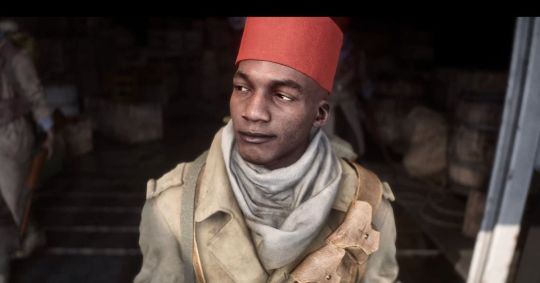

youtube
Part of The Verge holiday 2018 gaming guide
Fighting Nazis is timely again, and yet Battlefield’s return to World War II feels ill-advised. Endless war has taken a toll on this series, and the generals need a new strategy.
I’ll start with some praise. Despite its flaws, Battlefield V is a breathtakingly cinematic game, and it has all of the relentless chaos that fans expect. In my experience playing a press preview of the game, there were only a few bugs (mostly funny ones, like corpses wobbling in midair), and the game retains the series’s recent level of polish. Control inputs feel tight and fluid, everything looks really nice, and the user interface is better than ever, which are all real accomplishments. Battlefield V is an unquestionably well-crafted object.
But as I was thinking about this review, I could not escape a strange feeling. I’ve now been playing Battlefield since 2002. I’ve spent thousands of hours playing these games: it’s a weird fact that’s difficult to reconcile with my personal identity as an adult. A past self decided to love these games, and now I’m cursed by my mastery of them. At this point, it’s hard to tell whether I’m playing for enjoyment or routine.
It’s at least comforting to play the same game over and over, as the movements become rote. It’s nice when the body and a task become the same thing. (I think this is how games like Battlefield become so abstract: after a while, you’re not holding a gun or fighting Nazis; you’re just responding to patterns and using your limbs effectively.) But this familiarity can also be alienating. A few hours into my multiplayer tour, as the rest of the world faded to the background, I had a genuine out-of-body experience. It was like watching a phantom version of a younger self charging an enemy flag. The sameness of it all made me feel like a passenger. My Battlefield exploits now read more like The Myth of Sisyphus than a medal of honor citation.
Despite my optimism for big changes to the series, developer DICE bluffed its hand. The game’s “Grand Operations” mode strings together multiday battles that are supposed to have continuity, but the consequences of winning or losing a match are minor, like adding a little bit of time to the next round. You have to squint to see how Grand Operations differs from the 16-year-old Conquest mode, and other modes like Breakthrough and Domination don’t offer meaningfully different experiences. Battlefield V’s multiplayer is essentially a lot of the same chaos: capture a point, drive a tank, fly a plane, die, repeat. Character customization and progression are tedious and don’t add much to the experience, though I wholeheartedly welcome EA’s confident turn toward inclusiveness. Ultimately, Battlefield is still rock-paper-scissors with explosions — something with exciting moments, but no sense of accomplishment. At least they’re really nice explosions.
As multiplayer shooters are rapidly evolving with the emergence of differentiated battle royale games, Battlefield is no longer an FPS bellwether. I’ve been playing another recently released WWII game, Post Scriptum, which is made by a team of people who, incidentally, started as Battlefield 2 modders. If Battlefield V is a glistening statue, Post Scriptum is a pile of rocks. It’s buggy, clunky, and only for people with the patience for an early access game that might never be finished. It’s also one of the most memorable shooters I’ve played in a while, with moments that I want to run to tell my friends about.
youtube
Post Scriptum is a shooter that lets you do things other than shooting, which I think ought to be the future of every multiplayer game with guns. Its clever trick is using the stakes and atmosphere of a war game to make the non-shooting activities feel genuinely rewarding. Lately, I’ve been obsessed with playing Post Scriptum as Euro Truck Simulator: World War II. As a logistics truck driver, I can ferry supplies to the front line while getting shot at, which lets me be a part of the deadly spectacle of a large-scale battle without killing people. Playing music out of my truck over the game’s local chat is met with laughs and appreciation. It’s something I simply can’t find in a Battlefield game. It’s weird. It’s fun. It makes me smile. I just wish it was made by the artists at DICE.
And then there’s Battlefield V’s single-player campaign, which really surprised me. The “War Stories” format, introduced in 2016’s Battlefield 1, is the smartest attempt at single-player storytelling in war games that I’ve seen. I just wish DICE had made more of them. There are only three war stories to play in Battlefield V, with a fourth coming in December. (Battlefield 1 had six.) Each story takes about an hour to complete, and while they’re hampered by forgettable action sequences, laughable NPC intelligence, and formulaic set pieces, the format still feels like something with great potential.
Instead of playing an untouchable hero who inexplicably massacres hordes of enemies like in so many other shooters, these short stories allow you to be a vulnerable part of war’s death machine, which feels more authentic than getting the costumes right. Battlefield V’s opening sequence achieves this feeling to stunning effect. When you start the game, you jump between characters in rapid succession, often taking the place of someone who just killed you and continuing the fight from their perspective. The opening whisks you from a nighttime raid to a desert ambush and huge aerial battle. I wish the entire game had been like this.
The War Stories format also cleverly echoes the intangible experience of hearing real war stories told, which often walk the line between real historical accounts and tales stretched tall by time. I was impressed by one Battlefield V story about two brothers from West Africa who were sent to France to fight for a colonial power whose land they had never seen. After native French soldiers took their guns and handed them shovels, they had to overcome the racism of their allies before being allowed to achieve glory in battle — only to see themselves erased from history in the story’s epilogue. It’s a tight and powerful single-player story that’s wrapped in the modern context of a veteran reflecting on his long-secret contribution to history. I wanted more like it.
The “Tirailleur” story could have been the model for a deeply felt war game that elevates neglected heroes into popular historical canon. We’ve had decades of interactive Clint Eastwood movies, and so I appreciate DICE’s attempt to break away from tried-and-true narratives, even if it’s clumsy about expressing them in gameplay. I just wish these stories were the centerpiece of a more complete game, not a context wrapper for multiplayer deathmatches.
If the next Battlefield game only has a collection of untold war stories, I don’t think I’ll miss its multiplayer spectacle. After 16 years, I’m ready for my own war story to end and for others to begin.
Battlefield V is available now on PS4, PC, and Xbox One.
The Verge holiday 2018 gaming guide
September 9
Donut County is a game about swallowing Los Angeles and realizing you’re an asshole
Dragon Quest XI review (PS4, PC)
Dragon Quest’s creator doesn’t want to stop working anytime soon
Marvel’s Spider-Man review (PS4)
Shadow of the Tomb Raider review (PS4, Xbox, PC)
Destiny 2: Forsaken review (PS4, Xbox, PC)
Nintendo Labo Vehicle Kit review (Switch)
Nintendo’s new Xenoblade expansion eases players into the daunting world of RPGs
Life is Strange 2 review (PS4, Xbox, PC)
October 9
Assassin’s Creed Odyssey review (PS4, Xbox, PC)
Super Mario Party review (Switch)
428: Shibuya Scramble is the best crime book you’ll ever read on your PS4
The World Ends With You review (Switch)
Return of the Obra Dinn review (PC)
Call of Duty: Black Ops 4 review (PS4, Xbox, PC)
Red Dead Redemption 2 review (PS4, Xbox)
Red Dead Redemption 2 improves some of my favorite parts of The Witcher 3
This queer horror game forces you to literally tear yourself apart
November 9
With Diablo III and Dark Souls for Switch, you never have to leave the dungeon
Déraciné review (PSVR)
Tetris Effect review (PS4, PSVR)
Tetsuya Mizuguchi’s trippy new take on Tetris will put you in the zone
Tetris Effect is perfect for people overwhelmed by modern video games
Hitman 2 review (PS4, Xbox, PC)
How Hitman 2’s developers turned its gigantic levels into ever-evolving playgrounds
Sean Bean is excited to see how he dies in Hitman 2
Fallout 76 journal: an ongoing exploration of post-apocalyptic West Virginia
November, continued 3
Pokémon: Let’s Go review (Switch)
Pokémon: Let’s Go is the perfect way to introduce kids to the series
Pokémon: Let’s Go is a ‘starting point for the next 20 years of Pokémon’
December 1
Super Smash Bros. Ultimate’s single-player mode shines on the Switch
Source: https://www.theverge.com/2018/11/20/18103432/battlefield-v-review-single-player-battle-gameplay-combat-story-video-game
0 notes
Text
Happy Anniversary "Meteora"!❤😍(March 25th, 2003)

Meteora is the second studio album by American rock band Linkin Park. It was released on March 25, 2003 through Warner Bros. Records. The album was produced by the band alongside Don Gilmore. The title Meteora is taken from the Greek Orthodox monasteries sharing the same name.
Meteora has a similar sound to Hybrid Theory, as described by critics, and the album took almost a year to be recorded. The main artwork was assembled by the band with help of various other graphic artists. Linkin Park released singles from Meteora for over a year, including "Somewhere I Belong", "Faint", "Numb", "From the Inside", and "Breaking the Habit". The song "Lying from You" was released as a promotional single.
Meteora is the most successful album in the history of the Alternative Songs chart. As of 2013, the album has sold over 27 million copies worldwide, and is certified seven times platinum by the RIAA. Meteora was also ranked number 36 on Billboard's Top 200 Albums of the Decade. The song "Session" was nominated for the 2004 Grammy Award for Best Rock Instrumental Performance. Some songs from the album were remixed with some of Jay-Z's songs for the EP Collision Course. It is the first Linkin Park studio album to feature Dave Farrell after he rejoined the band in 2000.
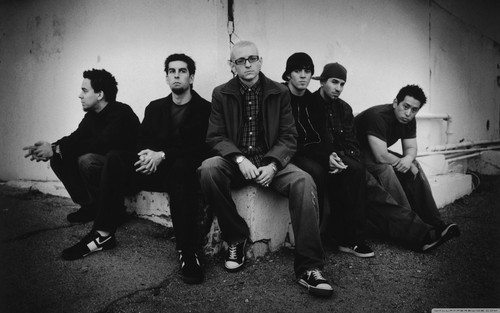
In 2000, Linkin Park worked with music producer Don Gilmore to record and release their debut album, Hybrid Theory. Initial writing for a second album dated back to early 2001, while still touring in support of Hybrid Theory. The band had written around eighty different demos during their Hybrid Theory World Tour and LP Underground Tour, within the span of just eight months. Rough song ideas written then would find its way to the final album; notably the intro for "Somewhere I Belong". Bennington recorded guitar notes for it, but found it too folk rock sounding. However, Shinoda and Joe Hahn reworked it, adding effects to it, and then played it backwards, molding it into something the band was happy with. As explained by Shinoda: "Since I reversed it, it was playing 4-3-2-1. The chord progression was reversed. Then I cut it into four pieces, and I played it 1-2-3-4. And that's why it has that sweeping sound."

In early 2002, after the touring, the writing continued in Mike's home studio, pre-production of the album began there. The band worked in pairs during the writing process, whereas Shinoda was always involved in all the songs. The recording of the songs mainly used Pro Tools, whereas the band used the traditional method of writing, in main studio. In June, pre-production terminated and the band headed for main production. The band finalized Don Gilmore as their producer. Rob Bourdon spent eight hours a day in the studio for the recording of the album. By August, the band entered NRG Studios as Bennington also began writing songs with the band.
Linkin Park had finished versions of many songs before the actual recording process had begun, but they majorly wrote the finalized songs included in the track list in the studio. By October the drums were finalized and guitar parts were introduced by Brad in the control room of the studio. By the end of October, the bass parts were introduced. Don Gilmore himself being a bass player helped Farrell in his recording. The sampling part by Hahn was introduced just a month before the deadline, thereby Mike finished the recording of "Breaking the Habit" with strings arrangement by David Campbell; the song had been worked on by Shinoda for five or six years. The vocal production started in November. The mixing process as well as the album itself was finished in New York City.
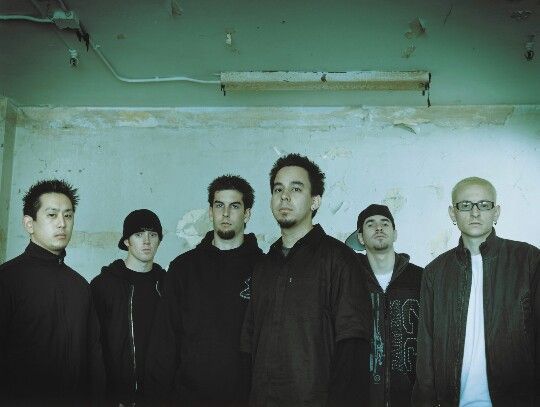
Lyrically the album contains elements including depressing emotions, anger, and recovery. Explaining to MTV, Bennington said: "We don't talk about situations, we talk about the emotions behind the situations. Mike and I are two different people, so we can't sing about the same things, but we both know about frustration and anger and loneliness and love and happiness, and we can relate on that level." In the same interview, Shinoda explained it as: "What we really wanted to do was just push ourselves and push each other to really find new ways to be creative." He continued: "We wanted each sample that was in each song to be something that might perk your ear – something that you might not have ever heard before."
In a promotional interview, Rob Bourdon stated: "We wanted a group of songs that would sit well together because we wanted to make a record that you could pop into your CD player and, from beginning to end, there would never be a spot where you start daydreaming."
In titling the album, Mike said that "Meteora was a word that caught my attention because it sounded huge." Dave, Joe, and Chester elaborated that just like how Meteora, the rock formations in Greece, is very epic, dramatic, and has great energy, the band wanted the album to have that same feeling.
Genre-wise, the album is categorized as nu metal, rap metal, rap rock, alternative metal, and alternative rock.

The promotion for the album began well ahead before its release, as pictures of the band recording were distributed to the media. To support the album, there were many photo shoots of the band on October 29, 2002 at the Ambassador Hotel, where the band took a break from recording the album for two days, for designing the cover art of the album. "The Flem" and "Delta" helped the band for the art works, for the album as well as for the singles spawned by it. A TV commercial for the album was premiered on January 1, 2003.
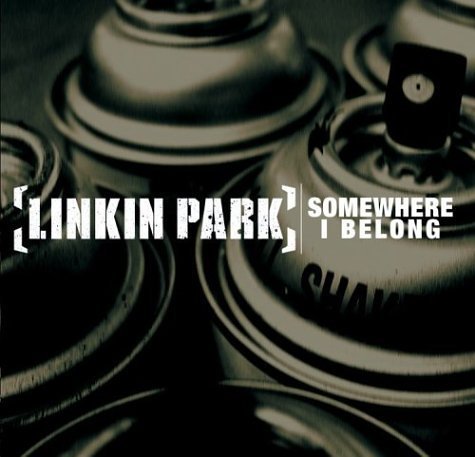
"Somewhere I Belong" was released as the first single, premiering on US radio on March 18, 2003. Being released only nine days before the album release, it influenced the album sales performance worldwide. The second single off the album was "Faint", released before the band started its world tour. The third single "Numb" was released when Linkin Park performed it live in Madrid. "From the Inside" was released as the fourth single off the album before the North American leg of the world tour. "Breaking the Habit" was released while the band was in Indonesia. The album was released with various limited edition content for promotional purposes.
The band promoted the album with their Meteora World Tour and various other supporting tours. The world tour was supported by Hoobastank, P.O.D. and Story of the Year. The band played shows at Pellissier Building and Wiltern Theatre on the day before the album release and on the release date. The shows were called "'Meteora' Release Show". The European leg was cancelled because Chester was having severe back and abdominal pains. As a result, half of the music video of "Numb" was shot in Los Angeles and the Czech Republic. The album was also promoted by the Projekt Revolution festival. A live album was released in support of the album titled Live in Texas. Linkin Park played various special shows worldwide, including "Reading Ireland", as well as performing during the Kerrang! Awards, "Livid", "X-103's Not So Silent Night", "The End's Deck The Hall Ball" and "KROQ Almost Acoustic X-Mas", in promotion of the album.

Meteora received generally positive reviews, although critics noted that the album's musical style was similar to its predecessor, Hybrid Theory (2000). The overall Metacritic score is 62. E! Online rated it A, and expected it to "shoot straight for the stars". Entertainment Weekly described it as "radio-friendly perfection". Dot Music described it as a "guaranteed source of ubiquitous radio hits" Rolling Stone said the band "squeezed the last remaining life out of this nearly extinct formula". Billboard Magazine described Meteora as "a ready-made crowdpleaser" The New Musical Express said it had "massive commercial appeal" but left the reviewer "underwhelmed"
AllMusic described the album as "nothing more and nothing less than a Hybrid Theory part 2.", but added that the band "has discipline and editing skills, keeping this record at a tight 36 minutes and 41 seconds, a move that makes it considerably more listenable than its peers... since they know where to focus their energy, something that many nu-metal bands simply do not." Sputnikmusic writer Damrod criticized the album as being too similar to Hybrid Theory, but praised the album's production quality and catchiness, stating "the songs just invade your brain".
Blender described it as "harder, denser, uglier", while Q described it as "less an artistic endeavor than an exercise in target marketing." Entertainment Weekly gave the album a B+, calling it a "thunderously hooky album that seamlessly blends the group's disparate sonic elements into radio-friendly perfection"
The song "Session" was nominated for a Grammy Award for Best Rock Instrumental Performance in 2004.
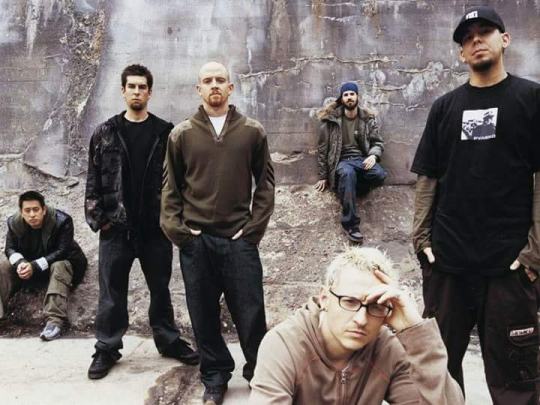
In its first week, Meteora debuted at number 1 on the Billboard 200. The album sold at least 810,000 copies its first week of release. As of June 2014, the album has sold 6.7 million copies in the US, and over 27 million copies worldwide. The album was ranked number 36 on Billboard's Hot 200 Albums of the Decade.

#linkin park#meteora#3.25.#3.25.03.#2003#2000s#mike shinoda#brad delson#rob bourdon#joe hahn#dave phoenix farrell#chester bennington
38 notes
·
View notes
Text
Super Smash Bros. Ultimate Review — World of Fight
When I think back on the original Super Smash Bros., I reflect back to when I was a kid, roughly around elementary/middle school age, and when I would play that Nintendo 64 classic endlessly. Those where the days when after getting home from school, I would spend hours in a bean bag chair in the basement, N64 controller in hand, and continue battling it out match-after-match against the Nintendo characters that I knew and loved. Whether I played as my favorite characters like Link or Ness, or spent hours mastering the art of perfectly landing a Falcon Punch or Jigglypuff’s Rest, Super Smash Bros. and its 12-character roster, at the time, felt like a Nintendo fan’s dream come true…or at the very least my own.
In the span of almost two decades, it’s incredible to look back and think of where the series started and where it compares now with Super Smash Bros. Ultimate, the fifth installment in Nintendo’s massive fighting game franchise that draws nearly all of its characters together, along with plenty of new challengers that have appeared. While I think back on the fact that I’m now far closer to adulthood than I am from my childhood and when I first played the N64 original, Super Smash Bros. Ultimate recaptures that same sensation that I had as a kid of seeing my favorite characters duke it out and then some.
Super Smash Bros. Ultimate, like its name implies, is anything and everything that a Nintendo fan could want not only from the series as a whole, but from its meticulous details and features that are drawn from across the entire Nintendo catalog of characters, places, and memories. While a few nagging features hold it back from perfection, Ultimate comes pretty darn close to being the perfect Smash Bros. game, and at the very least is a game that I can’t imagine any Switch owner going without adding to their roster of games to play with friends for years to come.
“Super Smash Bros. Ultimate recaptures that same sensation that I had as a kid of seeing my favorite characters duke it out and then some.”
Coming just about four years after the release of Super Smash Bros. for 3DS & Wii U, the focus of Super Smash Bros. Ultimate is placed on the fact that “everyone is here,” with the game bringing together every playable character that has ever appeared in a Smash Bros. game alongside a small (but notable) collection of characters that are brand new to the series, including several long-requested fan favorites. From series’ veterans like Mario and Link, to third-party characters like Snake and Cloud, to the roster of newcomers such as the Inklings, King K. Rool, and Ridley, there’s no denying that Super Smash Bros. Ultimate has a little bit of something for everyone, whether this is your first game in the series or (like me) you’ve been playing them all since the series’ humble beginnings.
As far as the core gameplay of Super Smash Bros. Ultimate goes, little has changed surrounding the basic idea that you and a group of friends (or CPUs) gather together on the battlefield and try to knock your other opponents off the stage to be the last one standing (or rack up the most KOs). However, while Ultimate doesn’t make any drastic changes to the gameplay formula that has kept players smashing for nearly two decades, the experience feels even deeper thanks to the game’s massive roster (and as a result, the many different fighting styles) that players have at their disposal.
“With a total of 70+ characters currently in the game, Super Smash Bros. Ultimate is a feast of different combat styles for players to experiment with.”
With a total of 70+ characters currently in the game — not counting the upcoming arrival of Piranha Plant and DLC characters like Persona 5‘s Joker — Super Smash Bros. Ultimate is a feast of different combat styles for players to experiment with. While plenty of characters like Mario, Link, and Pit offer playstyles that are a bit more well-rounded and versatile, playing as each and every character to discover their strengths, weaknesses, and very particular movesets feels incredibly rewarding, especially once you land on your “mains” that you might favor over other fighters.
A large part of that sense of discovery can be drawn from the brand new fighters that Super Smash Bros. Ultimate introduces, many of whom I think are some of the most varied and enjoyable fighters to play as yet. Characters like King K. Rool and Ridley not only have been long-requested by the Smash Bros. fan community, but add some welcome variety to the class of heavyweight characters. The Inklings from Splatoon bring one of the most unique fighting styles to the table centered around the use of their paint-based weaponry, while Castlevania‘s Simon Belmont (and his Echo Fighter, Richter) utilizes a combination of powerful projectiles and deadly ranged weapons to make him formidable at a distance, at the expense of mobility and recovery.
While the new fighters in Ultimate bring plenty of variety to the roster, many of the series’ veteran characters have also gotten some mechanical tweaks and changes that almost make them feel new again and worth replaying for longtime fans of the series. Link, for example, donning his appearance from The Legend of Zelda: Breath of the Wild, now has remote bombs in place of his explosives from previous titles, along with his grapple hook being removed for a more traditional grab. Ganondorf has also gotten some new abilities to distance him a bit more from Captain Falcon’s moveset, while characters that have been away from the fight for a while, such as Metal Gear Solid‘s Snake, have been welcomed back to Ultimate with a few new tweaks and changes from when we last saw them.
“The brand new fighters that Super Smash Bros. Ultimate introduces…are some of the most varied and enjoyable fighters to play as yet.”
Though the roster now encompasses an intimidating number of characters, Super Smash Bros. Ultimate hasn’t forgotten that the heart of the experience is simply about the fun of seeing these characters duke it out together in fantastical settings. As the series has ebbed and flowed from the more competitive, fast-paced experience of Melee to the slowed-down, more accessible gameplay of Brawl, Super Smash Bros. Ultimate has found just the right balance of gameplay that gives the series’ most devoted fans what they want from a Smash Bros. title, while not straying away from those that simply just want to play the game with friends without the stress of competition at higher-level play.
Mechanically speaking, Ultimate definitely feels like a bump up from the last installments of the series on Wii U and 3DS in terms of technique and the range of combat options at players’ disposals. While it still doesn’t quite stack up to the momentum of a match in Super Smash Bros. Melee, Ultimate feels like a solid middle ground between that game and the recent Smash Bros. titles by reintroducing some of the more technical components of the series like directional air-dodging, perfect shielding, and more. Even aside from these mechanical changes and tweaks, presentation-wise Ultimate adds a number of small (but appreciated) new details to the gameplay mix. This includes a new (optional) window that pops up when a fighter is knocked off-stage that shows their character’s distance in relation to the stage, while an awesome new slo-mo, zoom-in effect occurs when a player lands a finishing KO on another combatant, giving a nice sense of feedback to finally besting a tough opponent.
“The creativity of each fight [in Spirits Mode] makes its slightly repetitive nature worth your while.”
Outside of the enhanced character roster and bevy of new features and options, one of the biggest additions for Super Smash Bros. Ultimate is the new “Spirits Mode,” which brings players into a massive RPG-esque mode that is focused around the collection of “Spirits” representing different characters from across the Nintendo universe (and beyond). In a similar vein to the Subspace Emissary campaign from Super Smash Bros. Brawl, the centerpiece of Spirits Mode is the World of Light story campaign, where players start out as Kirby (clearly the GOAT in the Smash Bros. universe) and traverse a massive world map to take on a variety of battles, free the captive Spirits of other fighters, and even engage with several climactic boss battles.
The core experience of World of Light in a lot of ways feels like a blend of Adventure Mode and Events Mode in past Smash Bros. titles, with the idea being that players engage in battles with dozens of different characters from Nintendo franchises (and other outside gaming franchises as well), whether that’s well-known faces like Rayman, Bomberman, or Hal “Otacon” Emmerich, to far more obscure characters pulled from the deepest cuts of Nintendo’s history. Each of these characters is represented by a Spirit, which essentially takes the place of the collectible Trophies from past titles, but adds the ability for players to level them up and enhance their powers over time.
“[Spirits] takes the place of the collectible Trophies from past titles, but adds the ability for players to level them up and enhance their powers over time.”
Given that most of these characters don’t actually appear as playable fighters (or even as Assist Trophies), the Spirits that you are fighting against are instead represented in clever ways through the playable fighters, Assist Trophies, items, and stages available in Super Smash Bros. Ultimate. This makes each fight in World of Light incredibly unpredictable, but a lot of fun to discover how each character is represented in-game. For example, a fight against Pokemon‘s Latios & Latias has players taking on a red and blue Charizard at once, while the Bomberman fight puts players to the test against Young Link, the Bomberman Assist Trophy, and a ton of different bomb items constantly spewing across the map. Likewise, the fight against Metal Gear Solid‘s Otacon tests your abilities against a black-suited Dr. Mario and a sleek grey R.O.B., among the dozens of other battles that World of Light will put you through against its dizzying number of Spirit Battles.
While World of Light is a lengthy endeavor that will take players upwards of 15-20 hours (or more) to complete, the creativity of each fight makes its slightly repetitive nature worth your while, especially for the sheer delight of seeing Super Smash Bros. Ultimate draw from the deepest wells of Nintendo fandom. Many of the characters referenced in World of Light are the kinds that only the hardest of hardcore fans of Nintendo’s numerous franchises would recognize, and while some of the fights can feel a little cheap or unnecessarily difficult (especially the 1v4 battles), World of Light at least offers a welcome change of pace from the core multiplayer focus of Smash Bros.
“Super Smash Bros. Ultimate draws from the deepest wells of Nintendo fandom.”
Outside of Spirits Mode, Classic Mode also returns to Super Smash Bros. Ultimate with a bit of a remixed formula. While the basic structure remains where players go through a series of matches against opposing fighters, this time around Classic Mode is curated a bit more to each specific character with themed matches and encounters, making it less of a slog if you’re trying to get through Classic Mode with every single character. Likewise, other mainstay modes like All-Star Smash and Cruel Smash also return with some welcome changes but are no less of a challenge than when they first made their appearance in the series.
That isn’t to say that Ultimate has run out of ideas for new gameplay modes though, as the game introduces some welcome new modes with interesting twists to the traditional Smash Bros. format. Squad Strike is among the new multiplayer modes that effectively blends Smash Bros. with a Marvel vs. Capcom-like experience, giving players the option of either 3v3 or 5v5 battles with tag-team-style gameplay. The Smashdown Mode, in particular, is one that I think Smash Bros. players should regularly put into rotation, as it gradually eliminates characters from the roster after each round, forcing players to get outside of their comfort zones and having to select new characters to challenge their opponents with.
“Super Smash Bros. Ultimate is impressive in scope, detail, and the sheer breadth of options that it offers to players.”
Alongside the larger changes and new modes and features that have been added in Ultimate, there are also dozens of smaller quality-of-life adjustments and tweaks the game makes that will especially be appreciated by longtime series’ fans. One of the most notable is the fact that Smash Mode now offers the ability for players to create their own own custom rule presets, making it a breeze to select a game type — whether that’s timed matches, stock matches, or otherwise — and hop into battles right away without fumbling through the menus to change options.
However, I wish the same could be said for the game’s assortment of maps, with the collection now spanning over 100 in total. This time around, players have the choice of playing Normal, Battlefield, and Omega (aka “Final Destination”) versions of each map, giving some welcome variety to where you choose to fight. In my many hours with Smash Mode however, I wish choosing maps before each match had a more elegant solution to picking them (such as organizing them by type or game franchise) than either scrolling through each small map tile in the hopes of finding the specific one that I wanted to play, or just giving up and choosing to play a random map.
Though Super Smash Bros. Ultimate is impressive in scope, detail, and the sheer breadth of options that it offers to players, a few nagging issues hold the game back from being a perfect culmination of the series as a whole. Notably, that is apparent from the beginning with the fact that the game’s roster starts out with just eight fighters: the series’ original characters of Mario, Link, Kirby, Pikachu, Samus, Fox, Donkey Kong, and Yoshi. After that, players will have to go through and unlock the remaining 60+ characters through a few different methods, whether that’s through playing the World of Light campaign, Classic Mode, or playing an abundance of Smash Mode matches.
“Super Smash Bros. Ultimate‘s method of character unlocks, as limiting as it may be at first, does carry with it a sense of reward and accomplishment over time.”
The new character unlock system for Super Smash Bros. Ultimate is one that I’m sure will be divisive among fans of the series, and one that I’ve been conflicted on myself. In the past, typically each Smash Bros. game offered a fairly sizable roster of characters to draw from and play with, while the remaining characters required more specific ways to unlock them across the various game modes. Generally speaking, this system gave players a decent enough stable of characters to start out with, while taking the time to then fill out the rest of the roster over time. This time around though, players in Ultimate will probably have to put in around 10 hours or so just to unlock the full roster, which may come as a disappointment to those looking to hop into the action with their friends right away.
However, Super Smash Bros. Ultimate‘s method of character unlocks, as limiting as it may be at first, does carry with it a sense of reward and accomplishment over time. As I started to unlock new characters, it gave me the chance to really go back and see the major and minor changes that been made to long-standing vets like Mario or Link, and to hop back into matches with characters that I never really clicked with like Snake or Palutena. So while there is a give-and-take at play in having to unlock the majority of the game’s roster, there also comes with it a chance to really branch out and get a deeper appreciation of each character’s playstyle.
“Having the ability to play Smash Bros. in any setting — and have it look as good as it does — is a marvel.”
The other major component that fans will likely find hit or miss is the online experience of Super Smash Bros. Ultimate. Though the online components and matchmaking have come a long way from when the series first dabbled with online modes in Super Smash Bros. Brawl, the integration of Nintendo Switch Online is a slightly better (but still not ideal) solution for Super Smash Bros. Ultimate. Notably, input lag is still very prevalent despite the shift to a paid online service on Nintendo’s part, and with a game like Smash Bros. that demands precision and fast reflexes, succumbing to network lag and delayed inputs is a major challenge if you’re looking to get competitive against others worldwide.
At its best, the online portion of Ultimate proves inconsistent in delivering a steady connection, with some matches having little lag in the way of victory, while others made it incredibly difficult just to get through a match. It’s still an improvement, for sure, over Brawl and the Wii U/3DS games’ online offerings, but not the monumental shift that I was hoping for from both more capable hardware and a newly-invigorated online system from Nintendo. The online functionality is serviceable and gets the job done, but local multiplayer is still where Smash shines the brightest and where (I think) Ultimate players will probably find the most enjoyment from the game.
Despite these few weak points in Ultimate‘s design, the game more than makes up for that in how it looks and plays. Combining the best of both worlds from the spectacle of the console Smash Bros. titles with the convenience and accessibility of Super Smash Bros. for 3DS, having the ability to play Smash Bros. in any setting — and have it look as good as it does — is a marvel, thanks to Ultimate‘s wealth of playability and control options. Whether in handheld mode or surrounded by friends on a big-screen TV, Super Smash Bros. Ultimate looks incredible and has little in the way of visual impairments to slow it down with its smooth and precise gameplay. The character roster comes alive with tons of expression and impressive details, and the maps are all full of life from the series that they are based on.
“Super Smash Bros. Ultimate is truly the complete package for Smash Bros. fans.”
Likewise, the controls and responsiveness in Super Smash Bros. Ultimate feel as tight as the series has ever felt, and with so many different control options available between the Switch Joy-Con, Pro Controller, and GameCube Controller support, players will easily be able to hop into the battle. While I had a preference for playing Ultimate with the Pro Controller on a bigger screen as opposed to using the Joy-Con, having the ability to play Smash on-the-go and throw down a match wherever you want — as I did just a week ago at a bar with friends — feels just as satisfying as playing on the big screen.
While the saying goes that “bigger” isn’t necessarily “better,” Super Smash Bros. Ultimate is one of those very few exceptions and is truly the complete package for Smash Bros. fans. As the culmination of a series that has been seen on nearly every Nintendo console for almost 20 years, Super Smash Bros. Ultimate successfully delivers a comprehensive Nintendo history lesson, one of the largest rosters ever built for a fighting game, a vast amount of content for players to dive into, and of course, the sheer delight of its endlessly playable multiplayer matches. Where the series goes from here is unknown, or if it will even continue given how exhaustively that Ultimate collects everything from Smash Bros.‘s past. However, there’s no denying that Super Smash Ultimate, despite its few flaws, truly earns its title.
The post Super Smash Bros. Ultimate Review — World of Fight by Ryan Meitzler appeared first on DualShockers.
Super Smash Bros. Ultimate Review — World of Fight published first on https://timloewe.tumblr.com/
0 notes